














On behalf of the Board of Governors, I am pleased to present the UWCSEA 2021/2022 Annual Report to our community, which provides an overview and reflection of the College’s achievements over the last school year. It was a year full of joy and celebration as the College marked 50 years of the UWC spirit in Singapore, and I was privileged to be Chair of the Board as our global community of students, staff, parents and alumni came together to honour our past and look to the future.
The year began with our alumni reunion, when more than 800 alumni joined us for a series of online events, focused on our mission. Along with the launch of our Values in Action awards and the publication of a 50th anniversary song, written and performed by alumni and students, the reunions and events throughout the year connected our alumni back to the College. During Founders’ Week in December, we launched our 50th anniversary book, raised nearly $500,000 for scholarships and were honoured to receive a video message of congratulations from Prime Minister Lee Hsien Loong himself.
Throughout the year we had several speaker events, launching with a discussion on peace with Kishore Mahbubani—who also announced the UWCSEA partnership with the NUS Asia Peace Programme—and culminating in our Forum Learning to Shape the Future in April 2022. A hybrid in-person and online event over two days, it attracted a global audience of nearly 4,000 people and convened conversations on inclusion, innovation, partnerships, peace and sustainability. The presentations, given by leaders in education, as well as students, staff and parents, connected our whole community to our mission once more and reminded all of us of the ongoing urgency of making education a force to unite people, nations and cultures for peace and a sustainable future.
Reflecting on the many events of our 50th year, it is hard to believe that they took place as the College continued to respond to the impact of the global pandemic on our community and our operations. As restrictions lifted and were reintroduced through the year, the whole community remained responsive and flexible, re-prioritising operations while taking care of each other.
Perhaps inevitably, the end of the year saw a bigger transition within our community than in previous years, as staff and families made the decision to return home, after many years of separation from extended family and friends. Our inaugural College President, Carma Elliot, completed her three-year term, and we finished the year setting up a new leadership structure that will lead the community through the next phase.
No two years at the College are ever the same, and 2021/2022 was special in many ways. I would like to congratulate everyone associated with the College, past, present and future, on 50 years of extraordinary education in Singapore. I thank my fellow governors, whose dedication as volunteers is humbling and inspiring. On behalf of the Board of Governors, thank you to staff and leadership for their dedication and to our parents for their trust in us. Most of all, I would like to express my admiration for our remarkable students, in whose service we all stand.
Sincerely,
Madan Menon

Welcome to the 2021/2022 Annual Report for the College, which describes our achievements during our 50th anniversary year. I hope you enjoy reading it.
Annual reports inevitably share statistics and information, rather than individual or collective experience. Nevertheless, in reading through the report, I am very much reminded of the power and importance of the shared events that shape individual experiences. Sociologist Emile Durkheim captured this by talking about ‘two level man’. There is the humdrum level of individuality—the realm of everyday life. But there is also what he called the sacred—‘everything in us that expresses something other than ourselves’. As psychologist Jonathan Haidt says: "[we must] allow rituals to pull us out of the ordinary into the sacred, to bind us as a group; and then return to everyday life with our ties strengthened, and our awareness of collective identities enhanced."
Our 50th anniversary year provided us with ample opportunities to pull out of the ordinary and reconnect to our mission and purpose. In the midst of the pandemic years, thousands in our community came together to celebrate our past, and think about our future. Life today differs from life 50 years ago in so many ways that it’s hard not to think there will be further rapid change ahead. At the same time it’s also hard not to question the very foundations on which this change has been built. We can no longer confidently rely on technologies as an unqualified good; nor unquestioningly assume confidence in the processes and leaders of our public institutions; nor take for granted infinite natural resources, a stable climate, or social change that benefits all. And yet, with all that uncertainty, and allowing for the nostalgia that we inevitably feel when we look to what seems like a simpler past, our 50th year was characterised most of all by hope and by faith in the future.
That hope and faith was grounded in what matters most in our school—the human talent and energy of our students, staff and parents. The surest guarantors of our future are individuals and the ideas they have, including the values, intellectual, moral, and social, that they convey to one
another. This is at once both blindingly obvious but also immensely profound. None of our endeavours happen without the right people—but it’s so easy to forget that when we pay attention to systems, policies, processes, protocols, buildings and statistics. Sometimes we can get the impression that there is more to civilization than the humans who make it up. But there isn’t. A little maybe, but not a lot. The dance doesn’t exist without the dancer.
Our community is above all about people and I would like to acknowledge all the many people whose dedication helps our large and complex school run smoothly. Thank you to students and staff, and to all our partners who worked with us last year. Thank you to parents for your unfailing support, especially through very difficult days. Finally, and most importantly, a most sincere thank you, on behalf of everyone in our community, to our Governors, who work tirelessly in service to the College and whose leadership and support last year made so many things possible.
Nick Alchin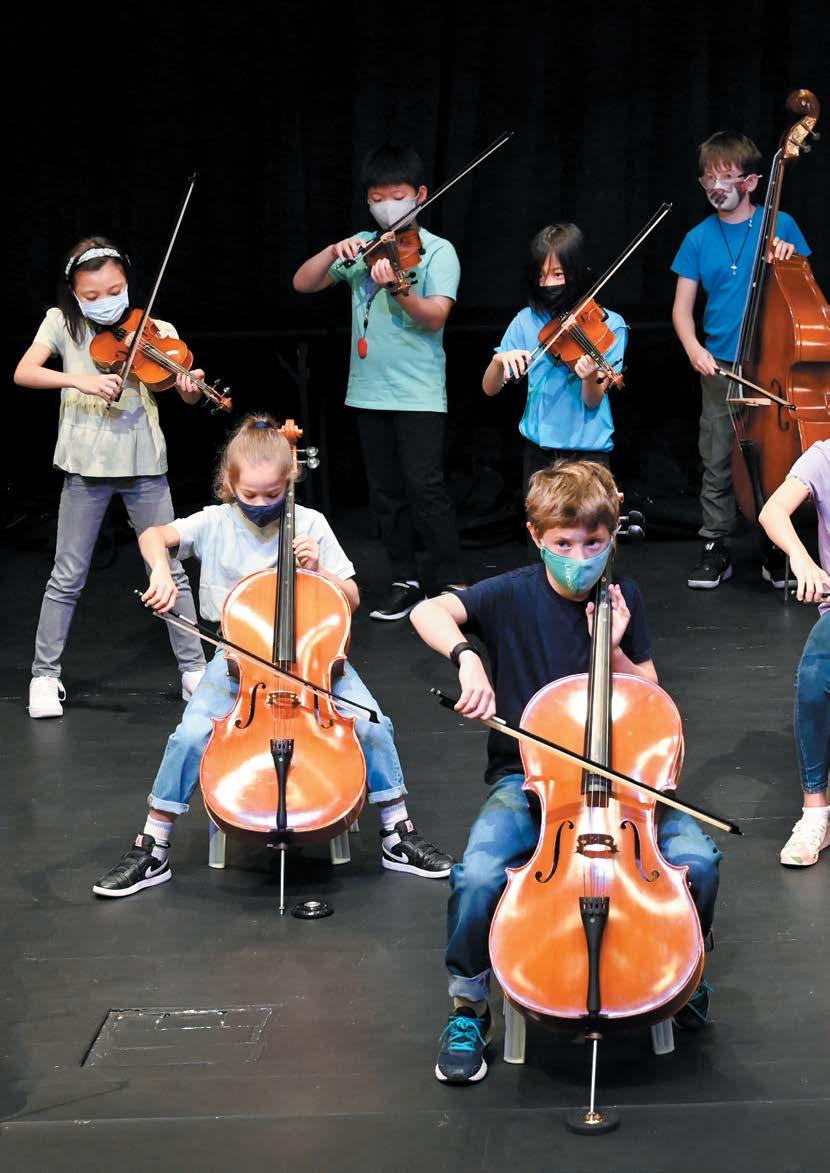
“The most common idea is that peace is the absence of war, that idea of negative peace. But when we think about peace education at UWC, and when we talk about peace education, we’re really talking about positive peace.”
ELLIE ALCHIN, Director of Teaching and Learning, UWCSEA Dover

Because UWCSEA is driven by its mission, values and educational goal, we create an environment that is underpinned by wellbeing and learning principles, and provide a holistic learning programme through a K–12 concept-based curriculum. The UWCSEA learning programme thoughtfully and deliberately provides all students with age-appropriate opportunities to develop the knowledge, skills, qualities and mission competencies that will enable them to live the mission throughout their lives.
UWCSEA Ambition: Our ambition is to be a leader in international education, with a worldwide reputation for providing a challenging, holistic, values-based education with an emphasis upon academic achievement, service to others, environmental stewardship, teamwork and leadership.










































































































































































































































Because UWCSEA is driven by its Mission, Values and Educational Goal, we create an environment that is underpinned by Wellbeing and Learning Principles, and provide a holistic Learning Programme that develops the Qualities, Skills and Mission Competencies that enable students to live the Mission throughout their lives.

Our culture of care creates a shared commitment to cultivate wellbeing for all members of our community. While we know that feelings of wellbeing are personal and vary between individuals, the College is responsible for providing the conditions for community wellbeing to flourish. This includes opportunities to feel connected, autonomous, and competent—for students, staff and parents alike—as described here:
Connected: we feel connected when we feel known, heard and cared for by others
Autonomous: we want to feel we can self-regulate our actions, where possible, and make our own meaning of events
Competent: a sense of competence arises when we feel effective and that we can continually develop craftsmanship around our work
Our Learning Principles are based on the understanding that learning is a life-long process in which the learner engages with and reflects upon information and experiences to construct new or modify existing understanding as well as develop and apply Qualities and Skills.
We know that learning is effective when learners:
• construct new understanding by activating prior knowledge and experience
• use timely and goal directed feedback
• collaborate
• are challenged
• feel secure and supported
• construct meaning by seeing patterns and making connections
• actively process and reflect
• apply meta-cognitve skills
• understand the purpose of the learning
• have ownership of their learning
Our Learning Programme consists of five interlinking elements: Academics, Activities, Outdoor Education, Personal and Social Education and Service. Delivered through a carefully crafted K–12 concept-based curriculum, the elements are combined to provide our students with a holistic education that develops them as individuals and as members of a global society.
Students are given multiple, age-appropriate opportunities to develop the following Qualities and Skills we have identified as required to help to fulfil our Mission:
Ultimately, we hope that when they leave the College our students will be equipped with these competencies so that they are able to enact our shared Mission to unite people, nations and cultures for peace and a sustainable future throughout their lives:
• Essential Literacies
• Interpersonal and Intercultural Understanding
• Peacebuilding
• Sustainable Development
• Self and Community Wellbeing
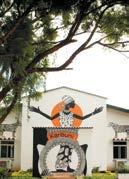
UWCSEA is a member of the UWC movement, a group of 18 schools and colleges around the world supported by a network of National Committees, made up of volunteers in around 150 countries. This year, the College celebrated the 50th anniversary since being opened on 15 December 1971 by then Prime Minister Mr Lee Kuan Yew.
UWCSEA is the largest UWC in the movement.


Opened in 1971

Student population
3,020 Age group 4–18
Opened in 2008
Student population
2,589 Age group 4–18
Opened in 1982
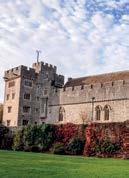

Student population 182
Age group 16–19
Opened in 1962
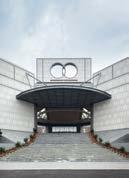
Student population
350 Age group 15–19
UWC ISAK Japan

Opened in 2006
Student population
192 Age group
16–19
Opened in 2014
Student population 220 Age group 16–18

Opened in 1969
Student population 500 Age group 3–20
Opened in 2014
Student population
200 Age group 15–19


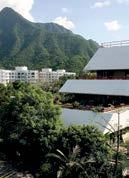





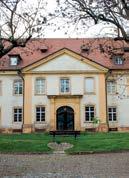


UWCSEA is committed to the highest standards of corporate governance. The UWCSEA Board of Governors recognises good governance as critical in supporting the school in achieving its mission and educational goal. Good governance begins with the Board of Governors and requires that they set the tone for the organisation.
The Board of Governors is one of the principal bodies with the fiduciary obligation to ensure that the College acts to further its stated objectives, and that the College has appropriate systems in place to properly account for and safeguard the funds and assets of the College. The Board of Governors works closely with the management and stakeholders of the College to shape the vision, chart the major directions, and develop programmes and initiatives to produce a strong and enduring impact for the College in Singapore and beyond.
The UWCSEA Board of Governors currently comprises 15 members. The Board includes respected business and industry leaders, academics, educators, entrepreneurs and professionals. All members serve on a voluntary basis.
The maximum number of Governors is 21. The Board has seven committees:
• Education and Talent, which sets and oversees education and talent management strategies
• Foundation Investment and Disbursement, which provides strategic direction for the Foundation’s investments and oversight of its disbursements and investments
• Finance and Infrastructure, which oversees the College’s finances and its physical and digital infrastructure
• Governance, which is responsible for nominations and governance matters
• Audit and Risk, which oversees audit and risk matters
• Engagement, which is responsible for improving the engagement and outreach of the College locally and globally, including the UWCSEA Foundation
• Committee of Chairs, which functions as a coordinating and management committee among the Chairs of the Board and Committees
Governors periodically re-evaluate the committee structure to ensure it is effective, strategic and forward-looking.
The Board meets four times each year. Each Governor is usually a member of one committee, which also meets a minimum of four times per year.
A Constitutional Review Steering Group, established in 2020 following the Heidrick & Struggles report (made available to the College community in May 2019), worked to address to address the following:
• improving documentation to clarify the role of the Board and Management to all stakeholders
• creating efficiencies by streamlining Board and committee papers
• improving induction and support for new Governors and Advisers
• providing useful and tailored training, engagement and team building opportunities for Governors, Advisers and management
A Governance Practices Working Group was set up in June 2022, tasked with progressively finalising the outstanding recommendations from the constitutional review. The deliverables from this group, including a Philosophy of Governance Statement, Board Charter and Code of Conduct for Board Members and Advisers will be formally launched, along with the revised constitution, once approved by the Charity Sector Administrator, in 2023.
The Board consists of three groups of Governors:
• Ad Personam Governors – the majority of Governors are appointed by the Board itself through a rigorous selection process. Many Ad Personam Governors are parents of current students of the College. To ensure the Board benefits from independent thinking, there are also several non-parent Governors
• Ex officio Governors – in July 2022, the College President Carma Elliot, CMG OBE resigned and was replaced by the Interim Head of College, Nick Alchin
• Interested Party Governors – these are elected directly by their constituencies and include two parent-elects and two teacher-elects, one from each campus
The Board recruits Ad Personam Governors through a robust process that responds to clearly defined skill requirements for the Board. Candidates are normally first co-opted as Advisers to Board Committees. New Ad Personam Governors are usually only selected from that pool of Advisers who have served on a Committee. Appointments are based on an assessment of the following factors:
• professional skills and fit with Board requirements
• role models for UWC values, culture and alignment with the mission
• demonstrated ability to contribute to a Board
• past contributions to UWC/service institutions
• impact on Board diversity
• leadership potential
• positive impact on government relations
There is a comprehensive induction programme for all Advisers and Governors that includes information about the College and the Board, an induction session with the Board Secretary, and meetings with the Chair of the Board and other Governors.
Governors serve a maximum of two, three-year terms. The College and the Board holds its Governors and Advisers to a high standard and regularly evaluates each Governor against the following criteria:
• is prepared for meetings
• listens to and challenges others, when appropriate, while maintaining an atmosphere of respect
• contributes and participates in a manner consistent with UWCSEA values
• has made meaningful contributions to key decisions
• attends most meetings and is highly attentive when present
• contributes overall
The College has a Whistle Blowing policy through which members of the UWCSEA community may, in confidence, raise concerns about possible wrong-doing or improprieties in financial or other matters within the organisation. The Board thoroughly and appropriately investigates matters brought to its attention through the policy and takes appropriate follow-up action.
The College policy requires Board and staff members to disclose any conflict of interest in the performance of their duties. In the case of the Board, the policy requires Governors and Advisers to report potential conflicts to the Governance Committee, which may impose remedies specific to the situation.
The Board also adheres to the College’s policies on corporate and individual behaviour, including the Board of Governors Guidelines, Confidentiality Policy, Harassment Policy, Staff Safeguarding Code of Conduct, and the Equal Opportunities, Access and Disabilities Policy.
The Board has adopted best practices in key areas of governance that are closely aligned with the Code of Governance for Charities and Institutions of a Public Character (the “Code”). In line with the Commissioner of Charities requirements, UWCSEA’s Governance Evaluation Checklist and new Transparency Framework can be found via the Charity Portal website www.charities.gov.sg.
Mark Porter
Madan Menon

Ad Personam Governor Chair of the Board




Chair of Committee of Chairs
Interested Party Governor – Common Room of UWCSEA Dover
Education and Talent Committee
Seng Chee Ho


Ad Personam Governor
Education and Talent Committee
Benjamin Hill
Detenber
Ad Personam Governor Education and Talent Committee
Leon Toh
Ad Personam Governor
Engagement Committee
Finance and Infrastructure Committee
Dimple Sanghi
Ad Personam Governor
Chair of Finance and Infrastructure Committee Committee of Chairs
Stefanie Green
Interested Party Governor – Parent Elect UWCSEA Dover Education and Talent Committee


Sajjad Akhtar

Ad Personam Governor
Vice Chair
Chair of Governance Committee

Committee of Chairs
Jonathan Forth
Ad Personam Governor
Chair of the Audit and Risk Committee Committee of Chairs
Jeff Plein
Interested Party Governor – Parent Elect UWCSEA East
Audit and Risk Committee
Heather Carmichael
Ad Personam Governor
Chair of Education and Talent Committee
Audit and Risk Committee Committee of Chairs
Kim Teo ’76
Ad Personam Governor
Foundation Investment and Disbursement Committee
Governance Committee
Pamela Kelly Wetzell
Interested Party Governor – Common Room of UWCSEA East
Governance Committee
Priti Devi
Ad Personam Governor
Chair of Engagement Committee
Committee of Chairs
Nick Alchin
Ex-officio Governor –Interim Head of College




Education and Talent Committee
Engagement Committee Foundation Investment and Disbursement Committee
Finance and Infrastructure Committee
Governance Committee
Kirtida Mekani (appointed 14 February 2022)
Dáire Dunne
Rahul Raj
Sharon Heller
Vivek Kalra (retired 21 January 2022)
Hyunggee Chung (resigned 3 June 2022)
Chas Pope
Yukiko Izumi
Anthony Hodge
Su Lian Tay (appointed 9 December 2021)
Brian Arcese (appointed 9 December 2021)
Penny Shone (appointed 9 December 2021)
Mara McAdams (appointed 16 June 2022)
Ijlal Naqvi (appointed 16 June 2022)
Don Stokes (appointed 16 June 2022)
Audit and Risk Committee
Jonathan Forth, Chair
Heather Carmichael
Jeff Plein
Anthony Hodge (Adviser)
Yukiko Izumi (Adviser)
Education and Talent Committee
Heather Carmichael, Chair
Seng Chee Ho
Benjamin Detenber
Nick Alchin
Mark Porter
Stefanie Green
Sharon Heller (Adviser)
Ijlal Naqvi (Adviser)
Mara McAdams (Adviser)
Engagement Committee
Priti Devi, Chair
Leon Toh
Nick Alchin
Penny Shone (Adviser)
Foundation Investment and Disbursement Committee
Dáire Dunne, Chair
Kim Teo ’76
Nick Alchin
Kirtida Mekani (Independent Director)
Finance and Infrastructure Committee
Dimple Sanghi, Chair
Leon Toh
Nick Alchin
Rahul Raj (Adviser)
Brian Arcese (Adviser)
SuLian Tay (Adviser)
Governance Committee
Sajjad Akhtar, Chair
Nick Alchin
Pamela Kelly Wetzell
Kim Teo ’76
Don Stokes (Adviser)
Committee of Chairs
Madan Menon, Chair
Sajjad Akhtar
Heather Carmichael
Priti Devi
Dimple Sanghi
Jonathan Forth
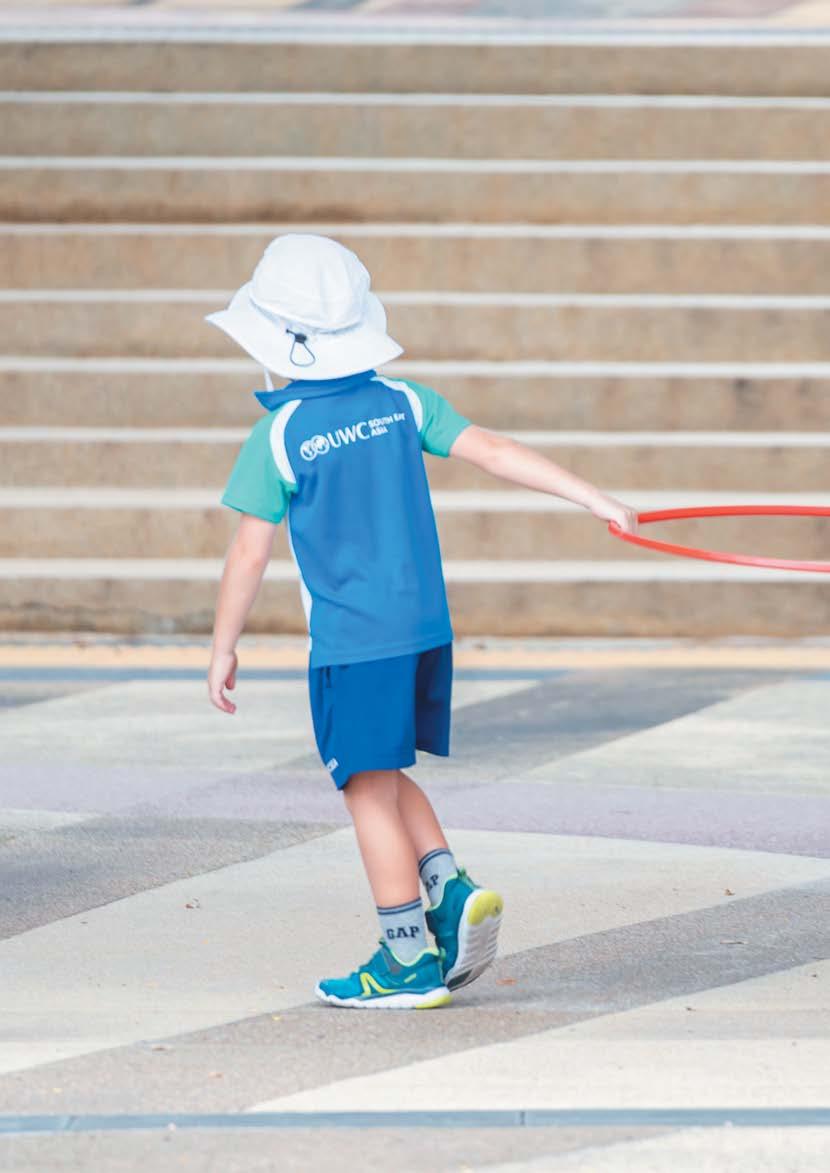
“The better we become at imagining alternative futures and understanding their consequences, the better we will be prepared for the future that eventually arises.”
ANDREAS SCHLEICHER, Director for Education and Skills, OECD, speaking at the UWCSEA Forum: Learning to Shape the Future, April 2022




During the 2021/2022 year, the College and campuses continued to enact the UWCSEA Strategy, based on the Strategic Vision which describes the intended five-year outcome in each of four Areas of Focus.
Ten distinct strategies, identified across the four Areas of Focus, have become strands that guide the College to realise the strategic outcomes. These strands inform planning and decision-making for campuses, schools and operational areas at the College.




During 2021/2022, each campus continued implementing the multi-year plans for projects that are bringing these strategies to life, supported by the College’s administrative and operational teams. Some strands were prioritised to receive focus, while other strands received less focus as the outcomes were on track, and others were identified as being a focus in the final year of the strategy, during 2022/2023. Priorities were necessarily different on each campus, and identified in the campus-specific strategies that were reviewed at the start of the year.
The Board of Governors oversees progress through a report on an Area of Focus at each of the four meetings during the year, while the senior leadership teams monitor the detailed projects.
The global pandemic continued to impact the operations of the College during the 2021/2022 school year, and operational reprioritisation and strategic, compassionate response to the ongoing conditions for students, staff and families remained a key consideration when adjusting the operations and programmes so as to remain in alignment with the College Strategy.
The following pages highlight the 2021/2022 outcomes of the campuses’ progress towards the UWCSEA Strategy 2018–2023 in each of the four Areas of Focus.



Students will be equipped with the qualities and skills to become compassionate, engaged global citizens who seek to make a positive contribution towards peace and a sustainable future. To achieve this, a diverse, united and caring College community will focus creatively on students learning through a dynamic, holistic programme that supports individuals, their wellbeing and their readiness for an uncertain future.
Effective operational practices provide for the College’s long-term future in Singapore.


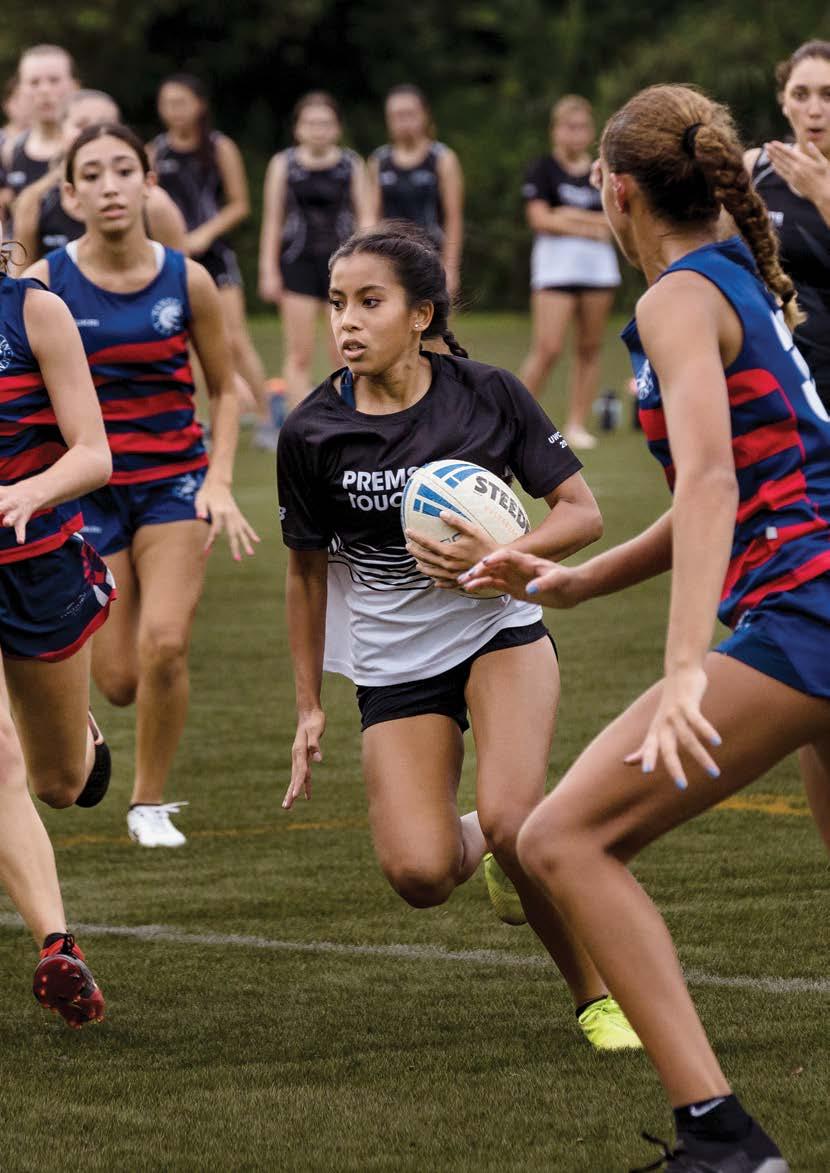
At UWCSEA, we educate our students to impact on individuals and society in accordance with the UWC mission. Through a holistic Learning Programme, students develop the skills and qualities (which meld to form the UWCSEA Learner Profile) to fulfil their potential and become life-long learners and ethical agents for change.
We understand educational excellence to be manifested by student learning across all five elements of our Learning Programme. This spirit of excellence, balanced with a serious commitment to wellbeing, will help inspire our community to rich experiences and high achievement.
Our innovation will align with our values. We will take scalable, safe-to-fail approaches to probe and test the boundaries of our strategies and practices.
Within the contexts of Singapore and our Learning Programme, we will seek to be inclusive and diverse, in accordance with our definitions of these concepts, and we will recognise the importance of intercultural competence.
Key developments during 2021/2022 school year:
Strategy E1: Extending Excellence
• Teaching and Leadership Standards adopted across the College
• convened global UWCSEA Forum: Learning to Shape the Future in April 2022
• Harvard UWC Impact study results published July 2022
Strategy E2: Deliberate Innovation
• Innovation Incubator projects accelerated several teaching and learning initiatives across both campuses
• development and delivery of Singapore-focused Outdoor Education programmes
Strategy E3: Diversity and Inclusion
• decolonising curriculum review completed and teaching for DEI roadmap established
• adoption of Intercultural Development Tool (IDI) including training for key staff to support Collegewide implementation and staff workshop by Dr. Eeqbal Hassim
• two-year DEI Project concluded with structure to support ongoing work established for August 2022 including a College Senior DEI Lead and campusbased teams of Designated DEI Leads
Our community is strengthened by diversity and united in common purpose.
On local, national and global platforms, we will seek to engage with and impact positively on individuals and communities who hold similar, disparate and diverse ideas. All members of our community should understand Peace to include concepts such as justice, equality and human rights and to be more than the absence of conflict. Our Learning Programme will help seed and nurture these concepts. We aspire to promote Peace in all of its contexts—for the individual, our communities and our global societies. We will embed structures to support learning for Peace and its systematic implementation across the College, and develop meaningful links with likeminded organisations that are in pursuit of the same goals.
Sustainability as a systemic response means aligning ourselves to the UN Sustainable Development Goals to end poverty, protect the planet and ensure prosperity for all within the means of nature. We will engage with these challenges by deepening our intellectual and moral capacities, and building our collective wisdom. We will develop our curriculum to ensure that sustainability is woven into all five elements of our learning programme from K–12. We will also develop our community’s capability in systems thinking. Key developments during 2021/2022 school year:
Strategy P1: Working for Peace
• finalised mapping of Peace Education across the College
• College research project to understand our K–12 student conceptions of peace


• year-long partnership with the Asia Peace Programme at NUS
Strategy P2: Sustainability as a Systemic Response
• launch of framework for planning overseas trips which includes assessment of sustainability measures as part of feasibility planning
• marine conservation learning initiatives extended on both campuses
• partnered with the Public Utility Board on framework for sustainable water systems
• campus operations data dashboard projects
• ecological goals promoting student engagement and reducing our carbon footprint have been recognised by NParks; East Campus awarded the Community in Bloom - Diamond Category Award
A strong College community, based on shared values, is fundamental to our success. Our community members will demonstrate respectful attention to diverse needs and perspectives, and compassionate engagement with others.
We seek to promote the educational significance of UWC residential life and will seek to harmonise the best of the day and residential experiences. We will strengthen relationships with one another, between campuses and with those outside our immediate community of students, staff and parents. We will build strategic relationships that extend our reach and deepen our impact. We will intensify the focus of the UWCSEA Foundation, enhance Alumni engagement, and continue to dedicate an agreed percentage of our annual turnover to scholarships.
Our fundamental responsibility to our community members is to keep them safe, well and secure at all times and in all situations. We will continue to develop robust safeguarding practices, and empower our community to identify and respond to safeguarding situations. We will implement policies, practices and programmes to support staff and student wellness and safeguard everyone in our community.
Key developments during 2021/2022 school year:
Strategy C1: Strengthening our Community
• delivery of an extensive community focused yearlong 50th anniversary celebrations
• implementation of Classlist, a parent-to-parent communications tool on Dover Campus


• rollout of new strategy for alumni engagement
Strategy C2: Keeping People Safe and Well
• Wellbeing Working Group with broad staff representation established to review existing practices and needs
• Suicide Prevention Training implemented across the College
• mental health benefit under medical policy has been further improved for all staff
UWCSEA puts people, not systems, first. Our plan for sustainable growth will be transparent and support our community, while reflecting and responding to current realities and future possibilities. We will guarantee the financial security of the College while balancing present and future educational, environmental and organisational needs.
In order to retain education as our focus, we recognise the necessity of humane, sustainable and effective systems.
We will develop operational systems that set a positive, data-informed culture around rigorous practices, adhering to all external regulatory requirements. In adapting to any changes, we will support our community and protect the College’s ethos and values. We will establish decision-making processes and leadership structures that enhance operational effectiveness while retaining flexibility to adapt to changing circumstances.
Key developments during 2021/2022 school year:
Strategy S1: Ensuring Long-term Financial Sustainability
• implementation of a rejuvenated investment strategy
• planning for long-term capex spend
Strategy S2: Embedding Effective Systems
• identification of new enquiry, application and onboarding management system
• scoping and pre-implementation for new budgeting system to support efficiencies
• Data Governance Working Group formed with updated Data Privacy and Protection policy
• Dover Campus successfully completed CIS/WASC reaccreditation
Strategy S3: Establishing Effective Decision-Making Structures
• new structures (CLT, LLT, OLT, COO and DEER) and increasingly aligned roles such as Directors of Teaching and Learning
• Learning Systems structures are in place
• campus level ELT and DLT role and responsibilities have been further defined, and (for example) Facilities, E-safety and Professional Learning Committees are now aligned cross-campus
“We thank UWC for helping to make Singapore a good place for expatriates to live and work. I look forward to the College continuing to play a valuable role in Singapore for the next 50 years and beyond.”
 PRIME MINISTER LEE HSIEN LOONG, Golden Jubilee message to UWCSEA, 15 December 2021
PRIME MINISTER LEE HSIEN LOONG, Golden Jubilee message to UWCSEA, 15 December 2021
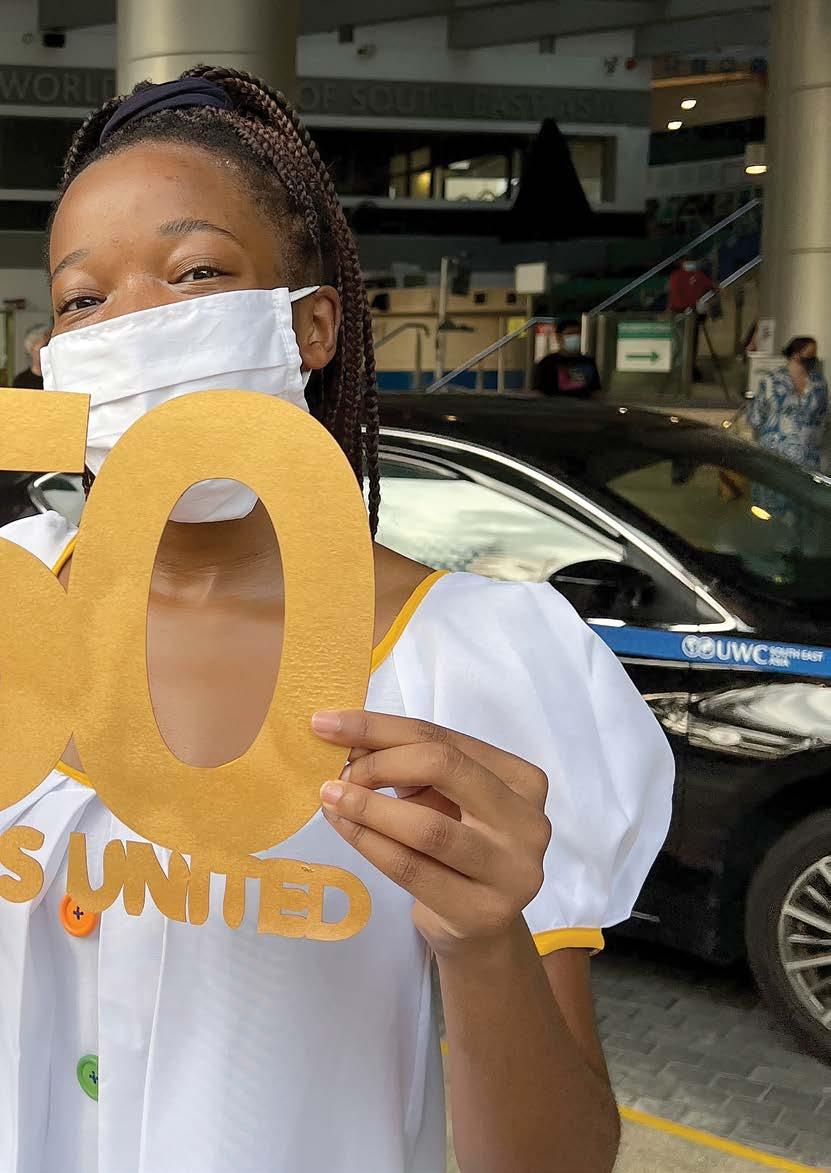
Centred on our mission and connected through our theme There is More in Us, our year-long 50th Anniversary Celebration focused on a series of community events involving students, staff, parents, alumni and our global community of partners. The programme for the year was punctuated by three flagship events:
Kicking off with the Alumni Reunion in August 2021, we managed to pack much activity and discussion into Term 1, including a Kishore Mahbubani Speaker Series event on UWC Day with the series namesake, before we turned to Founders Week. Running 13–17 December, activities centred on celebrating our deep connections with Singapore, the place that made us.
In April 2022 we hosted the two-day UWCSEA Forum themed Learning to Shape the Future. As the capstone event in our anniversary year, it was both an exciting celebration of what we have learned, and an opportunity to recommit to our vision of what a better world can be.
Other events and efforts were completed around these key milestone events, creating momentum and a sense of celebration, despite the limitation of the pandemic. These included parent and community events, student celebrations, PR activity, social media campaigns, donor thank yous, regional alumni reunions, fundraising engagement, sponsorships and partner engagement.
The year kicked off with the Milestone Reunion, which celebrated 14 classes (including the classes whose reunion had been cancelled in 2020): 1975, 1976, 1980, 1981, 1985, 1986, 1990, 1991, 1995, 1996, 2000, 2001, 2010, 2011.
Due to pandemic restrictions, for the first time this was a wholly online experience for alumni using the interactive Socio platform (also used in the Forum in April). Keeping in mind our alumni in different time zones, a programme of live interactive sessions was complemented by some popular pre-recorded videos which included a tour of the Dover Campus and a chicken rice cooking demonstration. A number of new sessions were successfully trialled this year, including a sustainability discussion, an overview of the impact of the scholarship programme and a connection session for alumni authors.
For further information on Reunion 2021, please refer to the Alumni section on page 67.
9–21 December
Our College would not be the same place without having made its home in the unique and vibrant global hub that is Singapore. On 15 December we took a full page in the Straits Times to say Thank You Singapore, and an outdoor campaign ran in bus shelters around both campuses carrying messages of thanks to the community in which we live and learn.
13 December
We continued to Reimagine Learning in a conversation with Faith Abiodun, incoming Executive Director of the UWC movement, in a discussion that brought Faith's fresh perspective and aspirations for the UWC movement to our community.
14–15 December
Our first-ever Giving Day on the College’s 50th birthday saw a series of challenges and activities across both campuses. A testament to the collaborative spirit and sense of community that is a hallmark of being a part of the UWCSEA family, in just 30 hours, we raised over SGD$450,000 from more than 730 donors in support our Scholarship Programme. With the generous support of the UWCSEA community, we were able to offer four new scholars the gift of a UWC education, including one female scholar from Afghanistan who attends UWC Thailand, in the 2022/2023 school year.
16 December
The coffee table book combines stories of truly seminal moments in the development of the College with an exploration of the themes that make us a UWC—service, sustainability, outdoor education, peace building, changemaking and the development of our holistic, mission-aligned curriculum. The book is available in all Singapore public libraries and in the National Archive.
15 December 2021
My warmest congratulations to UWC for 50 successful years in Singapore. Fifty years ago UWC was set up as one of the first international schools in Singapore educating the children of expatriates posted here. Since then UWC in Singapore has grown into an established and trusted educator. It has 5,600 students from over 100 nationalities and successful alumni all over the world. UWC’s success is intertwined with Singapore’s development and progress. Throughout this journey the College has made valuable contributions to the wider community especially through your vibrant service programmes.
These last two years have been very difficult for everyone because of the COVID-19 pandemic. In particular, it’s been tough on the international community here. You have had to comply with strict travel restrictions. Some families have endured long periods of separation from members abroad. The economic uncertainties have also heightened local-foreigner anxieties in our society which you may have personally encountered. I would therefore like to thank the international community here for standing shoulder-to-shoulder with Singaporeans through these difficult days.
Thank you for contributing to the economy and society and for being part of the extended Singapore family. We welcome you and value your contributions. We hope you will integrate well into our society and wish you and your family a productive and happy stay here.
Singapore will always be an international hub, open and welcoming to ideas and talent and we thank UWC for helping to make Singapore a good place for expatriates to live and work.
I look forward to the College continuing to play a valuable role in Singapore for the next 50 years and beyond.
Happy Golden Jubilee.
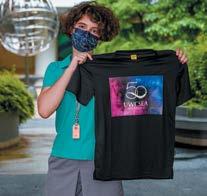

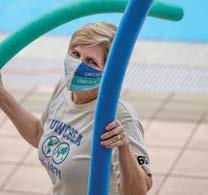



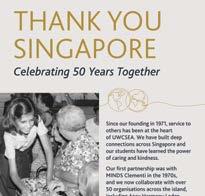
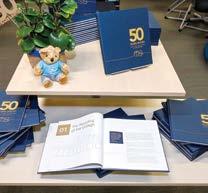


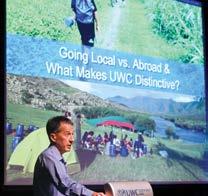
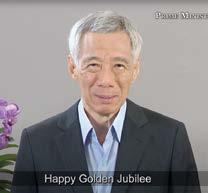






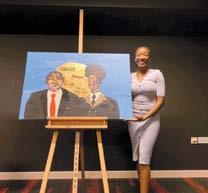

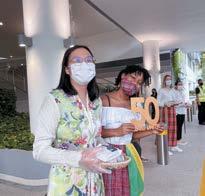



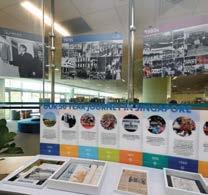

The capstone event of our 50th year was the two day UWCSEA Forum Learning to Shape the Future. Staged both in person and online, the objective was to engage both our UWCSEA community and the global education community in a conversation about the future of education. In all, 3,777 people registered to attend the Forum, with content shaped around five strands: peace, sustainable development, inclusion, innovation and partnerships.
Our keynote speakers provided engaging sessions to a live audience in Singapore and online audience drawn from some 130 countries:
• Howard Gardner, Professor of Cognition and Education, Harvard Graduate School of Education
• Andreas Schleicher, Director for Education and Skills, Organisation for Economic Co-operation and Development (OECD)
• Kishore Mahbubani, Distinguished Fellow at the Asia Research Institute, National University of Singapore (NUS)
• Forrest Li, Founder of SEA Group
• Musimbi Kanyoro, Chair, UWC International Board
• Faith Abiodun, Executive Director, UWC International
The 37 supporting workshops, discussions and case study presentations based on UWCSEA's innovative mission-aligned educational practice were run by 65 members of the UWCSEA community and our partners. This collective contribution spoke to the many ways that our College contributes to education as a force, and how we can continue to work together for even greater impact.
The Forum was the perfect way to celebrate UWCSEA in its golden year; and through the strong messages of partnership and progress, to catalyse our community to continue to guide our students toward peaceful, sustainable futures.
As part of a year-long focus on exploring the future of education, the College launched the 50th Anniversary Innovation Grants, encouraging staff to extend existing projects and test new learning opportunities for our students. Made possible in part through community gifts to the Annual Fund, the intent was to catalyse ideas that were already in development by supporting those that had potential to create and extend their impact both within and beyond the College.
“We wanted to combine a flexibility of approach with a way to build from the ground up, and to connect and build on ideas already alive in our community. We came up with the project based idea, because this matches best with where we observe people bring their skills together with their passions—at the transdisciplinary or interdisciplinary level—which is exactly what we are trying to encourage in our students,” explains Nick Alchin, Head of East Campus.
The projects, which were presented at the UWCSEA Forum, included:
• Reimagining Maths Education: broaden the UWCSEA Mathematics community
• Project Fuxi: extending music therapy for dementia patients
• Virtual Reality: creating immersive and inclusive learning experiences
• Mirrors and Windows: curating inclusive Primary classroom materials
• Innovative learning spaces for introverted and extroverted learners
• Ready Learner One Alumni Project; connecting alumni network with existing students

“Education might be the vehicle but we exist to make the world a better place. UWC exists to educate a generation of people who believe that they can take responsibility for the world and they desire to take responsibility for the world and must not shy away from that.”
FAITH ABIODUN, Executive Director, UWC International, in his keynote addressCommitment to Change at the UWCSEA Forum: Learning
to shape the future on 23

The ultimate aim of our guiding statements is to equip all our students with the skills, qualities and knowledge they will need in order to enact the mission and bring our values to their lives beyond UWCSEA through the UWCSEA Mission Competencies. In order to prepare our students to meet this ambitious goal, our holistic learning programme is delivered in an environment that is scaffolded with our Wellbeing and Learning Principles.
Through the five elements of the UWCSEA learning programme—academics, activities, outdoor education, personal and social education and service—students develop disciplinary knowledge, skills and understandings alongside the skills and qualities of the UWCSEA Learner Profile.
Opportunities to develop the skills and qualities identified in the UWCSEA Learner Profile are embedded in all five elements of the programme. Where a meaningful connection is made, intentional development of a specific aspect of the UWCSEA Learner Profile is explicitly linked to the associated benchmark, indicating the profile skill or quality that is being developed. These are used in our communication to teachers, students and parents.
The five elements of our learning programme complement each other to create a whole that is greater than the sum of the parts. This is a carefully planned and purposeful process, where students develop understanding in disciplinary and interdisciplinary ways. For example, students gain deep disciplinary understanding in our academic programme, which may be applied in outdoor education or service when students encounter and grapple with real world situations.
STORIES UWCSEA
The case studies included in this section of the report were selected to illustrate the learning taking place across the College, highlighting both the concept-based nature of the curriculum and the intentionally interconnected nature of the five elements of our learning programme.
During Term 1, a number of periods of home-based learning were required by the Singapore government as part of the nation’s health and safety regulatory response to Covid-19. Aimed at curbing the spread of Covid-19 in the Singapore community, the guidelines were fluid as Singapore carefully managed the transition of Covid-19 from the containment of pandemic conditions to the ‘living with’ conditions of an endemic virus.
As a result, our community was responsive to a number of changes required to keep our community safe and in alignment with the Singapore Governments’ health guidelines while learning continued. The changes were sometimes communicated at short notice, and it is a measure of the trust and confidence of our community, and the commitment and responsiveness of our staff that we were able to pivot so effectively during this period and continue to support student learning.
In addition to the government-mandated periods of home based learning, the College made a number of strategic decisions to support student learning, including moving several school sections to home based learning to ensure continuity of teaching and learning was possible in critical examination courses. Another significant community consultation saw the decision to move to home based learning for all students K–12 in the first week back after the Term 2 break in January 2021. This was to facilitate families and staff who were planning overseas travel for the first time since the pandemic began in early 2020, as travel restrictions around the world gradually eased. This decision was made in order to mitigate the impact of any quarantine measures on returning families and staff so as to ensure continuity of learning.
One of the significant outcomes of the College’s multi-year focus on DEI was the finalisation of the Teaching for DEIJ Framework as a way to create inclusive classrooms and engage students in thinking critically about equity and justice, and supporting them to develop the Mission Competencies.
The definitions (agreed following much community consultation) of DEIJ concepts in the classrooms at UWCSEA are:
• Diversity is the unique mix of differences found within a community, e.g., race, ethnicity, gender, family structure, language, physical abilities, neurodiversity etc.
• Equity is a paradigm and process to redistribute access and opportunity to be fair and just
• Inclusion is the valuing, belonging, and dignity felt by all in our community
• Justice is the repairing, restoring, and renewing of individuals and societies
Flexibly framed to support teachers to adapt for the developmental stage of their students, this table shows how UWCSEA introduces educators to ways of incorporating DEIJ concepts into their classroom practice:
Meaningful learning happens when students can connect what they learn to who they are.
Our own identities strongly inform and affect the educational experience we create for our students.
Teaching is enmeshed in power structures in our learning spaces.
Our choices as educators explicitly and implicitly communicate to students who has power and what agency looks like.
Teachers can reinforce or challenge dominant narratives, and include or exclude perspectives of historically marginalised groups.
We can use education as a force to build awareness of structural injustice, to enable students to critique sociopolitical systems for themselves.
As part of the responsive approach of the College, structured professional development supported teachers and other staff to examine some of the mental models that may have underpinned both classroom structures and the way staff interact with students. Some of these mental models included:
Asset-Based Thinking: Moving beyond deficit mindsets to celebrate the differences between us as strengths, yet to recognize that these differences require responsive approaches.
A Shift towards Decoloniality: Occurs in an ongoing way as we “decolonize the curriculum” to make one which is more inclusive, more accurate and more culturally responsive to our diverse learning community and their lived experiences. This means being willing to interrogate our written curriculum as well as the way students experience it, to uncover and challenge the denial or exclusion of non-dominant traditions of knowledge, allowing space for, and access to, multiple perspectives and leading to learning that is fully aligned to our mission and values.
Holism and Identity: Our learners are far more than their cognitive abilities, and transformational learning requires that we see, hear and value our students’ complex identities and experiences. To move towards DEIJ, identity must be honoured in the classroom. As educators, our own self-awareness in terms of what identities we bring and play out in the classroom is paramount.
Power With, not Power Over: Teaching for DEIJ means working in partnership with our learners and providing authentic opportunities for voice and participatory decision-making in an age-appropriate way. As educators with positional authority, we intentionally create space and share power with our learners.
We implement teaching for DEIJ by drawing upon three overarching strategies, which are illustrated here with examples of practices that align with these strategies:
Building positive student identities so that everyone feels valued and respected as part of the community.
Culturally relevant pedagogy recognising, incorporating, and celebrating the strengths that students bring so that learning and assessment feel relevant
Democratic classrooms promoting values such as inclusion, voice, representation, and participation
Identity-centred learning intentionally supporting student identity development by building psychological safety and developing a language for students to share about their identities
Restorative practice using principles of restorative practice to guide approaches to behaviour and classroom management
Universal design for learning designing learning engagements and assessments so all students can access them
Connecting to the local community to commit as engaged and active citizens.
A concept-based curriculum providing opportunities for transfer of learning to real world contexts
Place-based learning immersing students in local heritage, cultures, knowledges landscapes, opportunities and experiences
Service and community learning with local and global partners strengthening community through partnership, solidarity and informed action while explicitly challenging saviourist mindsets Peace education teaching peacebuilding skills
Systems thinking introducing students to systems thinking tools to analyse issues and take action for ecological and social justice
Including and appreciating diverse perspectives and backgrounds to see the world with different lenses.
Representation that reflects our student population increasing the diversity of teaching staff
Intercultural competence building capacity to engage with diversity in more complex ways
Challenging dominant perspectives and magnifying marginalised perspectives incorporating diverse voices through teaching resources and inviting students to critique dominant narratives
Teaching for complexity presenting a continuum of perspectives on controversial issues to challenge binary/ polarising bias
Critical literacy helping students to become aware of their experience relative to power relations, often realised through reading and writing
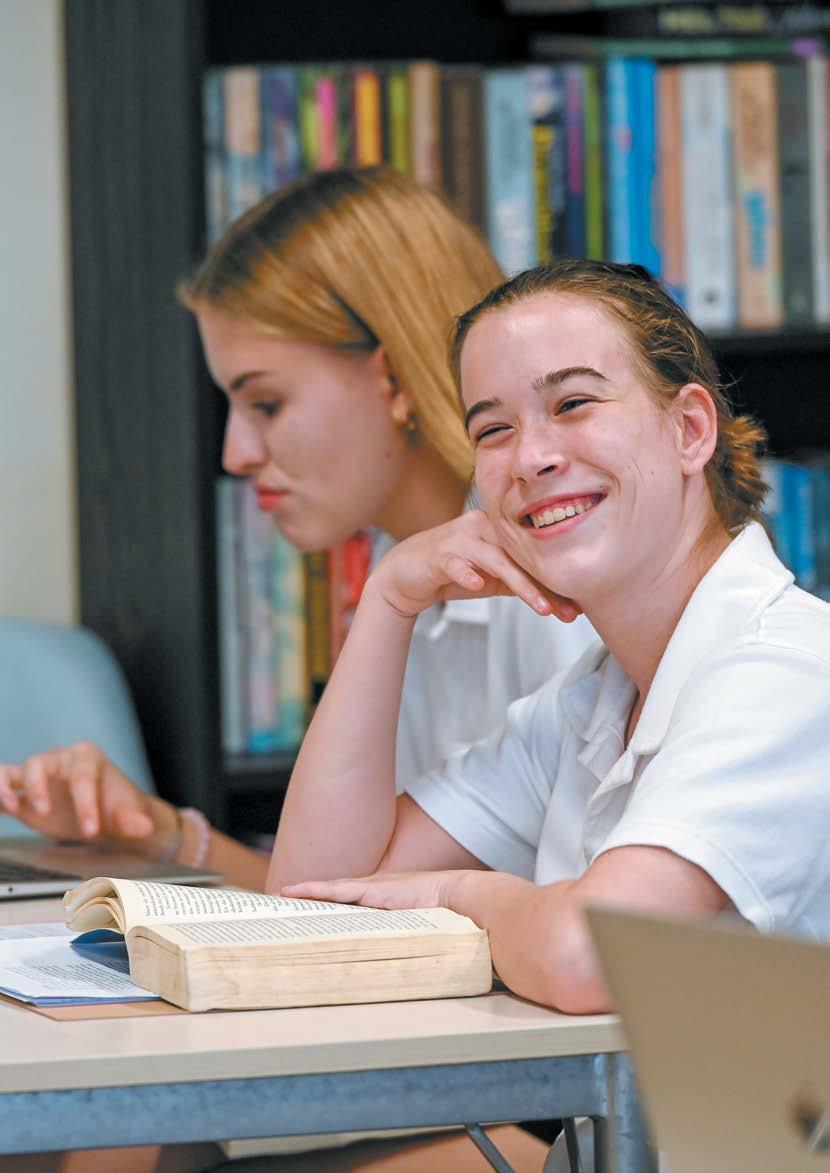
Through the Academics element of the UWCSEA Learning Programme, all students develop intellectual habits and passions that stay with them for life. Learning goals in languages, mathematics, sciences, the Arts, humanities, technology and physical education build logically through each grade, preparing students for the next academic challenge and for life beyond school. The conceptual nature of our curriculum, which focuses on ideas that can transfer across the world, supports students who are joining us from different countries, educational systems and backgrounds. Because the concepts that underpin that subject area remain the same, regardless of the content of a chosen text in English or a specific time period in History, which may vary between educational systems, the learning is transferable between systems should a student move from UWCSEA to another curriculum in their future education.
Throughout the 2021/2022 school year, teachers on both campuses prepared to roll out new UWCSEA-designed courses for students in Grades 9 and 10. Extending the existing K-8 concept-based curriculum, the courses in the new programme make authentic connections between the five elements of the UWCSEA learning programme.
As with the existing Foundation IB course, which has been running for students entering the College in Grade 10 for many years, the new Grade 9 and 10 programmes each provide valuable learning and excellent preparation for Grades 11 and 12. The distinctive features of the UWCSEA Grade 9 and 10 programme are:
• More flexibility and choice: students will have more ownership over their learning, with more options, including 1 or 2 year courses. This can allow for greater breadth, or greater depth of study in particular areas e.g., allowing students to select three Arts courses, three humanities, or up to four different language courses. A number of extension course options take students beyond the scope of IGCSE syllabi.
• More complex, real-world problem solving: students will have opportunities to explore theoretical knowledge in the context of Singapore case studies, with Singapore experts, and across our learning programme—taking theoretical classroom learning into action.
• More interdisciplinary thinking: students will be encouraged to make authentic connections between disciplines, considering the concepts that might enrich learning across seemingly disparate disciplines.
• More authentic assessment: in line with the IBDP assessment model, the UWCSEA 9/10 programme will assess knowledge, skills and understanding through a variety of tasks—including examinations, where appropriate to the subject. Authentic assessment is designed around real-world contexts and audiences.
The new Grade 9 and 10 Courses were offered to East Campus students joining Grade 9 in August 2022, as an alternative to enrolling in the two-year IGCSE certificate courses. An extensive community communications programme engaging students, parents and staff took place throughout the 2021/2022 school year and around 50% of the East Campus Grade 8 cohort moving into Grade 9 in the 2022/2023 school year elected to follow the UWCSEA Grade 9 and 10 Courses programme.
On the Dover Campus, the English Literature IGCSE course was replaced with the UWCSEA-designed English Course for all students enrolled in Grade 9.
In May 2022, 576 UWCSEA students were awarded the IB Diploma. The College achieved a pass rate of 99%, and this section outlines the examination results and university destinations of the Class of 2022.
119 Students awarded a Bilingual Diploma
25 Languages in which Bilingual Diploma was awarded Albanian; Amharic; Burmese; Chinese; Dutch; English; Estonian; French; German; Hindi; Indonesian; Italian; Japanese; Khmer; Korean; Portuguese; Romanian; Russian; Serbian; Sinhalese; Spanish; Swahili; Tajik; Thai; Vietnamese
99.6% of graduates in the Class of 2022 will go on to university; 80.5% directly after graduation, with the rest first taking a Gap Year or completing National Service.
Australia; Austria; Canada; Denmark; Estonia; France; Germany; Hong Kong; Ireland; Israel; Italy; Japan; Netherlands; New Zealand; Philippines; Qatar; Singapore; South Korea; Spain; Sweden; Switzerland; United Arab Emirates; United Kingdom; United States
Below is a list of universities that UWCSEA students were accepted to between 20120 and 2022.
Australia
Australian National University
Flinders University
Southern Cross University
University of Melbourne
University of New South Wales
University of Queensland
University of Sydney
University of Tasmania
University of Western Australia
Canada
Concordia University
Dalhousie University
McGill University
OCAD University
Simon Fraser University
St. Francis Xavier University
The University of British Columbia
The University of British Columbia, Okanagan
University of Calgary
University of Toronto
University of Toronto-Missassaga
University of Toronto-Scarborough
University of Victoria
University of Waterloo
Western University
France
College Universitaire de Sciences Po
Ecole Ducasse
ESCP Europe - Paris
INSA - Lyon
Instituto Marangoni, Paris
The American University of Paris
Hong Kong
Hong Kong Polytechnic University
The Hong Kong University of Science and Technology
The University of Hong Kong
Ireland
National University of Ireland-Cork
National University of Ireland-Galway
Royal College of Surgeons
Trinity College Dublin, the University of Dublin
University College Dublin
Italy
Politecnico di Milano
San Raffaele University Rome
Universita Bocconi
Japan
Hitotsubashi University
International Christian University
Keio University
Keio University, Shonan Fujisawa Campus
Ritsumeikan University Osaka
Sophia University
Waseda University
Middle East
Georgetown University Qatar
New York University Abu Dhabi (UAE)
Northwestern University Qatar
Tel Aviv University (Isreal)
Netherlands
Amsterdam University College
Amsterdam University of Applied Sciences
Delft University of Technology
Eindhoven University of Technology
Erasmus University Rotterdam
Leiden University
Leiden University College The Hague
Maastricht University
Royal Academy of Art
Technical University of Delft
Tilburg University
University College Maastricht
University College Twente
University College Utrecht
University of Amsterdam
University of Groningen
University of Twente
Utrecht University
Virje Universiteit Amsterdam
Wageningen University
New Zealand
University of Otago
Victoria University of Wellington
Rest of World
Aarhus University (Denmark)
Ludwig Maximilian University of Munich (Germany)
Lund University (Sweden)
Silliman University (Philippines)
University of Natural Resources and Applied Life Sciences, Vienna (Austria)
University of Tartu (Estonia)
Singapore
ESSEC, Singapore Campus
Nanyang Academy of Fine Arts
Nanyang Institute of Management
Nanyang Technological University
National University of Singapore
SIM Global
Singapore Management University
Singapore University of Technology and Design
Yale-NUS College
South Korea
Korea Advanced Institute of Science and Technology
Seoul National University
Yonsei University
Spain
ESADE Business School
IE University
IE University - Madrid Campus
Switzerland
École hôtelière de Lausanne
Glion Institute of Higher Education
United Kingdom
Arts University Plymouth
Bath Spa University
Bristol, University of the West of England
Brunel University London
Cardiff University
City, University of London
Courtauld Institute of Art, University of London
Coventry University
Durham University
Goldsmiths, University of London
Imperial College London
Institute of Contemporary Music Performance
King’s College London, University of London
Liverpool Institute for Performing Arts
London School of Economics and Political Science, University of London
London South Bank University
Loughborough University
Manchester Metropolitan University
MetFilm School
Newcastle University
Norwich University of the Arts
Nottingham Trent University
Queen Mary, University of London
Royal Holloway, University of London
Royal Northern College of Music
Royal Veterinary College, University of London
School of the Art Institute of Chicago
Sheffield Hallam University
SOAS, University of London
St George’s, University of London
Swansea University
The University of Edinburgh
Trinity Laban Conservatoire of Music and Dance
University College London
University of Bath
University of Birmingham
University of Brighton
University of Bristol
University of Buckingham
University of Cambridge
University of Central Lancashire
University of Chester
University of Dundee
University of East Anglia
University of Essex
University of Exeter
University of Glasgow
University of Gloucestershire
University of Hartpury
University of Hull
University of Kent
University of Leeds
University of Leicester
University of Lincoln
University of Liverpool
University of Manchester
University of Nottingham
University of Oxford
University of Reading
University of Sheffield
University of Southampton
University of St Andrews
University of Stirling
University of Sussex
University of the Arts, London
University of Warwick
University of York
United States
American Musical and Dramatic Academy
Amherst College
Babson College
Barnard College
Bates College
Bentley University
Berklee College of Music
Boston University
Bowdoin College
Brandeis University
Brown University
Bryn Mawr College
Bucknell University
California Institute of Technology
California Institute of the Arts
California Polytechnic State UniversitySan Luis Obispo
Carleton College
Carnegie Mellon University
Case Western Reserve University
Claremont McKenna College
Clark University
Colby College
Colgate University
College of the Holy Cross
Colorado College
Colorado State University
Columbia University in the City of New York
Connecticut College
Cornell University
Dartmouth College
Davidson College
DePaul University
Duke University
Emerson College
Emory University
Emory University-Oxford College
Fordham University
Franklin and Marshall College
Furman University
George Washington University
Georgetown University
Georgia Institute of Technology
Gettysburg College
Harvard University
Harvey Mudd College
Haverford College
Indiana University-Bloomington
Johns Hopkins University
Lake Forest College
Lehigh University
Lewis and Clark College
Loyola Marymount University
Luther College
Macalester College
Massachusetts Institute of Technology
Methodist University
Miami University-Oxford
Middlebury College
Minerva University
New York University
Northeastern University
Northwestern University
Oberlin College
Parsons School of Design
Parsons School of Design, The New School
Pennsylvania State University
Pepperdine University
Pitzer College
Pomona College
Pratt Institute
Princeton University
Purdue University
Rhode Island School of Design
Ringling College of Art and Design
Rochester Institute of Technology
San Diego State University
Santa Clara University
Sarah Lawrence College
Savannah College of Art and Design
SCI - Arc (Southern California Institute of Architecture)
Scripps College
Skidmore College
Smith College
St Lawrence University
St Olaf College
Stanford University
Stony Brook University
Swarthmore College
Syracuse University
The College of Idaho
The New School
The University of Texas at Austin
Trinity College
Tufts University
University of Arizona
University of California-Berkeley
University of California-Davis
University of California-Irvine
University of California-Los Angeles
University of California-Riverside
University of California-San Diego
University of Chicago
University of Colorado at Boulder
University of Denver
University of Florida
University of Hawaii at Manoa
University of Illinois at UrbanaChampaign
University of Maine
University of Massachusetts-Amherst
University of Michigan-Ann Arbor
University of Nevada-Reno
University of North Carolina at Chapel Hill
University of Notre Dame
University of Oklahoma
University of Oklahoma-Norman Campus
University of Oregon
University of Pennsylvania
University of Richmond
University of Rochester
University of San Diego
University of San Francisco
University of Southern California
University of Virginia
University of Washington
University of Washington-Seattle Campus
University of Wisconsin-Madison
Vanderbilt University
Vassar College
Virginia Polytechnic Institute and State University
Wellesley College
Wesleyan University
Wheaton College
Whitman College
Williams College
Worcester Polytechnic Institute
Yale University
At UWCSEA our entire campuses have been co-opted into providing students of all ages real-life learning opportunities linked to the UWC mission. While both campuses have achieved Greenmark Platinum Super Low Energy accreditation, awarded by Singapore’s Building and Construction Authority, and many students have been involved in solar panel installation, tree planting and rainforest regeneration, there has been quiet and extensive progress towards consolidating the unique educational opportunity that the facilities on both campuses provide for our students.
Based on the premise that students can learn more effectively by immersing themselves in real-life experiences that are relevant to them, a collaborative project between teachers and the Facilities team has deliberately planned opportunities for students to bring their classroom learning to life on campus. A key factor in taking this place-based approach to planning learning experiences is the switch in how the campus facilities are utilised; rather than simply providing a venue for learning, the buildings—and those who manage them— are reframed as direct contributors to the education of the students by providing relevant, real life examples.
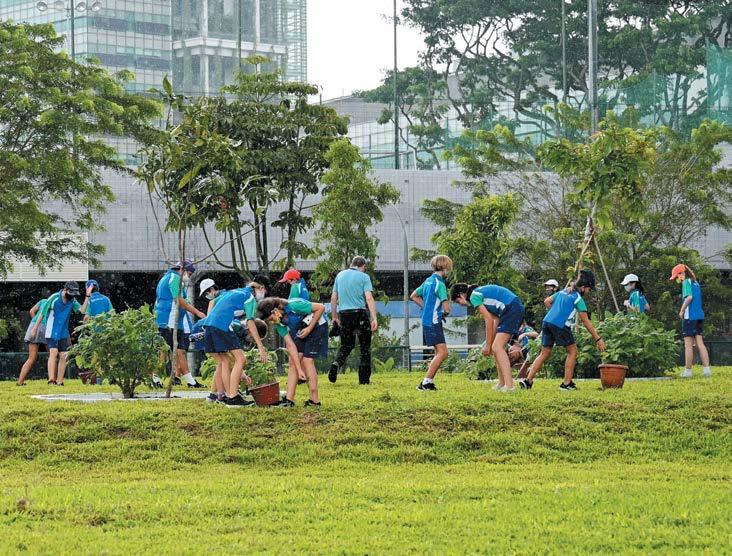
Adapted from White Paper 2: UWCSEA Changemakers: Placing sustainable futures at the heart of a school
Each campus holds myriad potential for place-based real-life application of classroom lessons: the way they are designed or remodelled, lit, cooled, landscaped, managed and cleaned—ensures that students are surrounded by real-life examples of sustainability in action. Over the past decade, our students have been involved in the planning and development of the campuses, and now contribute ideas to improvements and refurbishments. Further, there are programmes in place across many of the elements of our learning programme for students to contribute to the sustainable operation of the campuses, and in the 2021/2022 school year there was a particular focus on developing case studies that would enable students to apply their learning in the Academic programme.
Student involvement as part of their participation in the learning programme is a key to the success of numerous operational initiatives, from managing the compost systems, to helping the canteens become zero waste, to cultivating seedlings and maintaining gardens. It has been a conscious effort to build educational opportunities into as many aspects of the day-to-day operations on each campus as possible. At Dover, for example, the Solar for Dover student group designed a live dashboard to help monitor the solar fields on that campus, while the Solar for East team have made over 80 classroom presentations on environmental management to students of all ages. Both campuses also now have a live solar lab, supporting hands-on environmental engineering and science lessons.
This extensive network of real-life examples is something that Ellie Alchin, Director of Teaching and Learning on Dover and Aman Singh Chauhan, Head of Facilities and Operations across both campuses, worked to extend by engaging the expertise of the Facilities and Operations teams who run the sustainable buildings in support of student learning in modules across the Academic programme.
The result is nine sustainability case studies that are built into the Academic curriculum, extending the links already established in the Service curriculum. These modules are based on a model of place-based learning, a powerful approach that gives students hands-on experience and real-life examples by combining the on-campus environment with subjectmatter expertise shared by the staff responsible for operating the facilities.
Sustainability learning doesn’t end there, however, and staff continue to work together with engaged students to connect with suppliers to help them understand their impact and improve their commitment to sustainability, and hence that of the school. This year canteen initiatives such as composting, food waste minimisation and recycling and vegetarian Wednesdays have continued to form a key part of student learning. Development of the Sustainable Trip Planning Framework, which can also be used by Project Week students in their planning, is another step in the direction of sustainable learning.
This ‘whole of school’ approach defines the way UWCSEA describes developing a mission competency, which is that a student’s education is a way for individual members of the community to develop approaches to living and skills that can be extended and built on throughout their lives.
UWCSEA’s multifaceted Activities programme provides students with opportunities to explore new interests, develop their strengths and pursue their passions. It is a vital part of student learning and provides a creative and highly individualised outlet for each students personal development. Importantly, the programme provides opportunities for students to interact with students from other grades and parts of the school, extending their community at school and using campus facilities that may not be part of their academic programme.
Founded on the notion of breadth of opportunity, our intentionally diverse programme provides students with opportunities to develop and to enjoy success beyond the classroom. Choice is a key principle of the programme. Organised around four ‘seasons’ students have opportunities to sign-up for individual seasons or make year-long commitments, depending on their interests. Many students participate in the array of offerings made available via the extensive existing activities programme. Led by staff who are keen to share their interests and support students in their development, a number of activities provide opportunities for students to extend their classroom passions by connecting their special interests with their learning. Other students join with like-minded peers to approach staff who will assist to supervise their proposed activity, and add it to the seasonal sign-up so that they can lead the activity.
One of the benefits of the scale of UWCSEA is the sheer number of options we are able to offer students. The chart below shows the average number of activities that students in each grade take throughout the year. It indicates that students in all grades are taking full advantage of the offerings from the Activities programme.
2,846 Activities offered at Dover Campus
2,414 Activities offered at East Campus
Student participation by the numbers


During the 2021/2022 school year, the College remained committed to continuing to provide a range of activities for students. The complexities of Covid-19 safety measures, with sometimes late notice to changes in rules and safety requirements meant that the provision of many of the activities offered in the programme was impacted; in particular in the periods of home-based learning and stricter social distancing measures. However, the contribution of continued connection and pursuit of individual interests is critical to student wellbeing and the operational challenges of continuing to offer the Activities programme were addressed with student wellbeing as a top of mind consideration.
While all sports competitions and student conferences were halted for much of the school year, students were encouraged to pursue fitness goals and our focus shifted to ensuring students remained engaged in teams and programmes. In Term 3 a number of inter-school sports competitions resumed, and regional competitions such as swimming were conducted online via simultaneous synchronised starts.
Many students were able to continue to engage in this element of the learning programme, despite the challenges, and were also engaged in the holiday programmes which were organised during the majority of the school holiday breaks.
As part of the 50th Anniversary, the College launched an Innovation Incubator, encouraging staff to test new learning opportunities for students. The intent was to catalyse new and exciting ideas that had the potential for tremendous impact within and beyond the College.
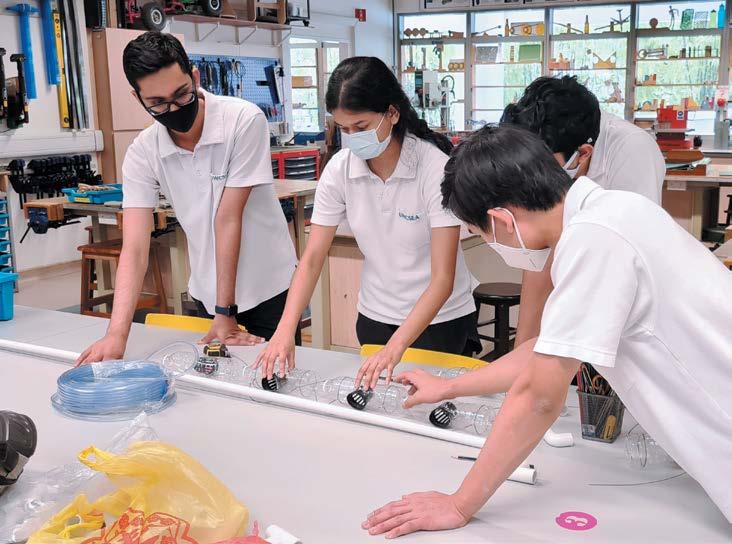
On the East Campus, Project Zero was the result of staff and student collaboration with the aim of developing maths enrichment activities that engaged students in both disciplinary and interdisciplinary learning. By encouraging the development of transferable skills through projects that supported the UWC mission and values, the Math Department hoped to attract learners who were interested in alternative approaches to applying their mathematical learning in diverse real life situations.
Our students developed not only mathematical skills, but also skills of collaboration, communication, and critical thinking and creativity which are also essential to being a good mathematician, and whatever field of study they pursue in the future. Because Project Zero is an extracurricular activity meant to supplement maths classes, there is much more space to explore concepts in depth without the looming worry of a terminal examination.
Adapted from UWCSEA Forum presentation by Tippi Zhu, Teacher of Mathematics, East Campus and Jia Cheng Anthony Shen ’22, East Campus graduate
Unlike a traditional activity, which is very much a linear progression following a path set by either a teacher or a student leader, all of the student groups independently developed and evolved their own projects from start to finish.
Some 93 students comprising 27 groups applied to be part of Project Zero. We selected 21 students and five projects; as with any selective activity, we were at pains when not everyone received the opportunity to take part, as I’m sure many other ideas would have done well. But working with six student leaders, 11 community members—comprising industry professionals, alumni, and on-campus staff—we undertook nine months of project work in a number of areas.
One project focused on the globally-relevant concern of optimal social distancing during the time of pandemic. Students looked into the graphic design of static scenarios such as theatre and restaurants, as well as simulation of dynamic scenarios such as shopping malls and an active classroom, extending their simulation from two dimensional to three dimensional measures.
Another group prototyped, 3D printed, and assembled a low cost-EEG detecting device. The mathematics involved including a Fast-Fourier transform [algorithm] to break down the brain waves into different frequency ranges, which they tested against independent variables such as resting, reading, and watching a video. They are in collaboration with service partner Apex Harmony Lodge to look at the effects of music on the brain activity of dementia patients. The daily life issue of traffic jams before and after school were the target of another group. This was a great direction to practise problem solving with mathematics, especially when this topic could go all the way to a PhD thesis! Our students conducted observations on the key corners around the campus. After identifying the cause of traffic jams, they looked into different AI algorithms to detect cars that were changing lanes inappropriately. The Grade 9 students in this group made some very insightful data analysis.
Not all of the projects were STEM-based; one group looked at whether group diversity as measured by personality, leadership traits and gender, affected group performance. Their journey used several different approaches to examine the core problem of whether more diverse teams are better teams including: a computerised simulation (coded by one of their members), interviews with different groups around school, and a randomised psychology experiment involving over 200 students in which they tested three different methods of group organisation.
And finally, our vertical agriculture project candidates researched past vertical planter models and designs from the perspectives of life expectation, climate impacts, and energy efficiency and came up with a revolutionary model: a simple one piece module that can be scaled up to any size in any space. They have created the prototype and will use data simulation and collection to analyse and optimise the model on campus.
My take away as a teacher is that this learning cycle seems to be for both sides. It will challenge our educators to make innovative applications of mathematics, to make binary connections rather than just maths formulas, and to provide spontaneous support rather than standard unit plans.
The Outdoor Education programme is a powerful part of the UWCSEA experience, providing students across the school with opportunities to develop the UWCSEA Learner Profile qualities of resilience, commitment to care, self management, communication and collaboration.
In the spirit of exploration and innovation, the delivery of the Outdoor Education programme continued in 2021/2022, offering students across both campuses and grades the opportunity to undertake deliberate learning in the outdoor education curriculum.
The College’s commitment to the provision of an exceptional Outdoor Education programme by employing a team of full time specialist staff meant that the College was well-resourced to continue to deliver an extensive hyper-local programme in collaboration with curriculum leaders. Synergies between the Outdoor Education curriculum and other elements of the learning programme were strengthened, and in keeping with the College’s approach to place-based learning, this also provided opportunities to identify where better use could be made of existing campus facilities and equipment, and of Singaporebased locations.
Staff across the Outdoor Education team, together with educational leaders and teachers worked tirelessly to provide students in Primary, Middle and High School with alternative campus- and Singapore- based programmes. These were carefully designed to deliver the learning outcomes identified in the UWCSEA Outdoor Education curriculum, developed in line with the intentional foundation of the four K–12 standards defined by our written outdoor education curriculum. The four standards are:
1. Personal Identity
2. Healthy relationships
3. Connectedness to Nature
4. Expedition skills
Over the period of the pandemic, the College took the opportunity to consider how to better align operations and delivery of our learning programme with our mission to use education as a force to create a sustainable future. Outdoor Education, which is experienced by every student at the College, was one of the most obvious places to start.
In 2021/2022 a collaboration between campus-based Sustainability Leads and the Outdoor Education team, which had originally created an ‘Outdoor Education Trip Planning Checklist’ was used to inform the development of a College-wide ‘Sustainable Trips Framework’.
As the College begins to plan trips further afield once again, all trip proposals in the 2022/2023 school year will rate on criteria under: Carbon Footprint and Educational Impact and Trip Behaviours. The scores are plotted on a trip evaluation grid as part of a process which takes into account other factors, such as whether the same experience can be delivered at a location within or closer to Singapore and whether the trip being planned can integrate other elements of the learning programme.
The development of the original Outdoor Education checklist into this new sustainable planning assessment tool included a review of policy and practice that recognises both the educational and operational impact of each trip. The new framework provides the College an opportunity to balance decisions that ensure student safety, wellbeing and learning outcomes with an approach that minimises the environmental and social footprint of each trip wherever possible, including factoring in the impact of all the transport elements of a trip.
In Term 3, as the College began planning for a possible return to overseas travel in upcoming school year, this new framework was launched as a decision making tool to be used by all trip planners who are proposing an overseas trip for our students, whether on the Outdoor Education expedition programme, or undertaken as part of Academics or Activities.
The disruptions of the pandemic necessarily required the Outdoor Education team, and the students participating in the programme, to draw on their reserves to develop the UWCSEA Learner Profile qualities in new ways. Disrupted travel and rapidly changing safe distancing measures continued to require flexible and innovative solutions to deliver Outdoor Education programmes with similar learning outcomes in Singapore.
The dedicated Outdoor Education specialist staff supported the delivery of pandemic-modified programmes:
Concept based approach and themed units create an interdisciplinary and experiential approach with weekly campus activities.
Grades 2–5
• Campus Discovery
• Campus Exploration
• Local Discovery
• Local Exploration
Grades 6–8
• Outdoor Discovery: Campus to Coast
• Outdoor Exploration: Green and Blue Spaces
• Outdoor Adventure: Unique Ecosystems
Grade 9–11
Singapore based programme drawing on connections to Singapore, nature and the UWCSEA mission. Multi activity interdisciplinary programmes with a focus on connection.
• Grade 9 Pulau Ubin Outward Bound programme
• Grade 10FIB micro-adventure week on campus
• Grade 11 tradition of Project Week returned, with a successful Singapore-based programme.
173 adventure trips in school year
3,424 students participated in adventure trips

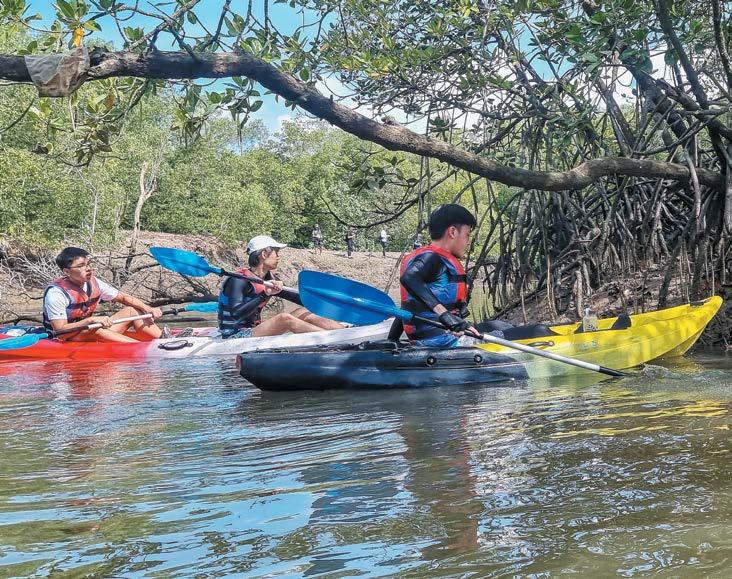
For well over 40 years Project Week ran annually, despite challenges such as Bird Flu, H1N1, SARs, natural hazards and political unrest in the region. It took a pandemic to stop the trips in 2020. There were fears the experience would be lost forever when the circuit-breakers of 2021 and ongoing restrictions meant Project Week was cancelled for a second year. It was therefore an enormous pleasure to see students resuming the valuable educational tradition with Project Week 2022 in Singapore.
Project Week is a unique programme, undertaken by all Grade 11 students on both campuses. It involves independent, low cost trip planning, which challenges students to learn about themselves and their ability to work effectively with others beyond the limits of the classroom. Project Week has a CAS (Creativity, Activity, and Service) focus, which is an integral part of the IB Diploma Core requirement, allowing students to complete worthwhile, meaningful projects.
Project Week provides an invaluable learning experience as students work outside the normal College routine to encourage self-reliance, initiative and resourcefulness; develop new skills; encourage contacts outside their usual daily routine and to work on the essential seven IB Learning Outcomes using the five stages of CAS. Students prepare for the trips in small groups, following good trip planning protocols, with the support of a teacher supervisor.
Dover students completed their projects in Singapore from Monday, 25 – Wednesday, 27 April, and in keeping with the High School’s annual calendar on East Campus, students completed their Project Week trips from Monday, 6 – Wednesday, 8 June. The three-day programme was designed by students, although some choose to begin their CAS activities over the weekend to maximise the opportunity, completing an impressive range of activities.
Service learning was a popular option specifically at Willing Hearts, a soup kitchen that prepares, cooks and distributes around 11,000 daily meals to those in need, while others chose litter picking across the island and other volunteer work from food packing to charity shop window-dressing. Some students chose to expand their creative and life skills with painting, graffiti art, cookery, pottery, self-defence, first aid, archery and perfume-making courses, to name but a few. Outdoor activities were also popular and varied from trekking, kayaking, cycling and dancing to sailing, martial arts, paddle and wakeboarding. After the project days students then take time to reflect to maximise learning opportunities.
Project Week Singapore was a worthwhile experience. The students gained far more than IB credit for the time they spent planning and then actively engaged in creative, activity and/ or service activities. They gained invaluable life experiences and we thank them for their help in restarting this important tradition which will be a precursor for future trips in Singapore and beyond.
336
Dover students
74 Student groups
255
Dover students
60 Student groups
The Personal and Social Education (PSE) programme helps to ensure that students feel secure and valued. In turn, this provides an effective base that encourages their learning, growth and social development. PSE intentionally builds the skills and qualities of the UWCSEA Profile by asking students to take an active role in everyday problem-solving, reinforcing the concepts of both the UWCSEA wellbeing and learning principles.
PSE underpins our entire programme, and is informed by both our mission and our Singapore context. It supports our international student community so that they feel truly valued by the adults who are leading their learning. Key to our PSE programme is the understanding that all teachers are PSE teachers and responsible for using key practices. Creating a safe, reflective learning environment allows students to engage with the PSE programme fully.
The intent is that they can continue to grow in self-awareness, gaining an understanding of themselves and how they interact with those around them so as to develop effective and open-minded responses to personal and cultural differences. The PSE curriculum content is classified in three overarching concepts:
1. individual wellbeing (self awareness and management)
2. Interpersonal wellbeing (social awareness and relationship skills)
3. citizenship and global wellbeing (privacy and safety, ethical communication, access and ownership)
Time is dedicated each week for the intentional delivery of this important part of the student experience. However, student welfare is not limited to the allocated PSE time with their classroom teacher/mentor. Student welfare is also encompassed by safeguarding, learning support, wellness centre and counselling support, university advising, Heads of Grade, Vice Principals and Principals in supporting social and emotional needs of students.
While all members of staff have a responsibility for the wellbeing of students, the learning support and wellness and counselling teams are central and work closely with teachers to ensure that students are supported both within and outside of the classroom.
Our safeguarding data reflected global trends that saw a downturn in the mental health of young people throughout Covid-19. In response to these increased concerns, some of the key safeguarding achievements for 2021/2022 were:
• We have rolled out three different levels of suicide prevention training for staff across the College. We are also offering suicide prevention training to older students and parents, in an effort to make our community as suicide-safe as possible
• Online interactions between staff and students were essential during Covid-19 and highlighted the need for us to put in place more robust policy and practises, which we have done
• Strengthened our connections with other international schools in Singapore through regular network meetings and sharing of ideas. Amongst other things, we have begun planning to build a safeguarding database with other schools so that we can monitor trends in student wellbeing across Singapore
• As planning overseas and local trips started to occur, we re-started the detailed checking of the safeguarding capacity of all organisations that the College has partnered with. With hundreds of these organisations throughout the world, this is a huge ongoing task
• We also tightened our protocols with regard to visitors on Campus and our expectations of the community in terms of keeping children safe, and we now collect safeguarding information from previous schools for all new enrolments
• An important part of student wellbeing is a sense of belonging in our community hence our work on inclusion is especially important. We know that our LGBTQ+ students are particularly vulnerable to mental health concerns and we have developed a protocol for ensuring they feel empowered to tell us what they need to feel safe and comfortable at UWCSEA
• A team of Designated Diversity, Equity, and Inclusion Leads were appointed for the 2022/2023 school year at both Dover and East campuses, and a team leader with dual campus responsibility will join the College in January 2023
UWCSEA’s Gender Inclusion Policy, effective from April 2022, was an important step to create a mission-aligned environment where all belong, under the umbrella of UWCSEA Diversity, Equity, and Inclusion policies and procedures.
The College commits to building an inclusive community, where individuals' uniqueness can be expressed in a safe, respectful, and welcoming environment that is free from stigma and supports our students’ learning, regardless of their sexual orientation, gender identity, or gender expression.
At UWCSEA we believe that any exploration and expression of gender-expansive behaviour or transgender identity is an appropriate and healthy aspect of human development. Gender identity is seen as a core aspect of personal identity and we believe that only an individual can determine their own gender identity.
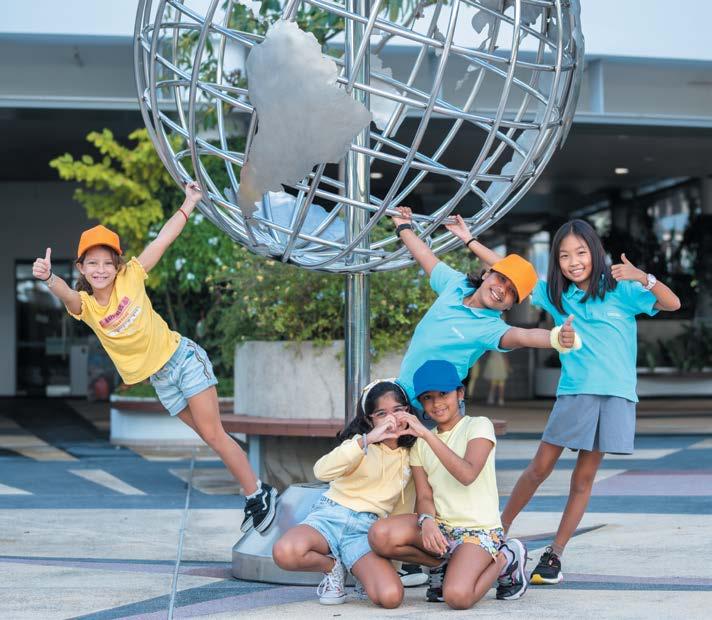
Gender inclusion guiding principles:
1. Every student should have the opportunity to learn in a safe and accepting school environment
2. All staff must commit to the safety and wellbeing of the youth they serve, including those who are transgender or gender-expansive
3. The exploration and expression of gender identity is a healthy and appropriate aspect of human development
4. We endeavour to support students by collaborating with families where it is appropriate and safe to do so
5. Establishing a student-led, collaborative, intentional, and ongoing process supports transgender students while they attend UWCSEA
6. A support plan creates a student-led, shared understanding of the ways in which the student’s gender will be accounted for and supported
As we have moved to further integrate our mission into our daily lives at school, we have a deepening appreciation for the diversity we see around us in our classrooms and community. As a school we have a deep commitment to purposefully considering our words and actions to help all children feel seen, supported and heard.
This year, with a focus on supporting our ongoing work in DEIJ, we started to look at the materials and resources available in our classrooms and libraries. This led to a project that would introduce stories containing characters reflective of the diversity found in our UWCSEA families.

Adapted from an article by Vikki Wright, Primary School Vice Principal (Infants) and Andrea Strachan, Primary School Curriculum Coordinator, Dover Campus
When we want to value and acknowledge everyone’s family we all start the year by bringing into school a family photograph, which are proudly displayed in the classroom. In K1 one of the first projects the children engage in is called, “What is my world?” and this is an opportunity for families to scrapbook their child’s world. Many children talk about countries they are connected to, they talk about who lives in their family, all alongside their interests and favourite foods. In Grade 1, students engage in a Unit of Study focused on “celebrations,” and the many ways in which these are a reflection of their families and their culture. These discussions are a starting point for future work on identity through units such as K1’s “Who am I?”
This year, with a focus on supporting our ongoing work in DEIJ, we started to look at the materials and resources available in our classrooms and library, and realised that although our school was plentifully resourced with books, many books were not necessarily “mirrors” of our students or their families. As a result, Infant School Teachers, supported by a UWCSEA 50th Anniversary Innovation Grant, have been working to source and purchase new books to add to classroom and library collections, so as to introduce stories that contain characters reflective of the diversity found in our UWCSEA families.
As we began to collect materials for the unit, we looked carefully for books that may provide mirrors or windows for our students. We were able to find a book that spoke beautifully about the traditions associated with a wedding, whilst providing an opportunity to present a different ending than we were maybe expecting. Many children were able to raise their hand to share suggestions, make connections and ask questions.
Our teachers are incredibly excited and engaged in this work, which is taking place alongside similar efforts to support linguistic inclusion for students whose home language is not English. Work in linguistic inclusion has seen linguistic landscaping across our campuses, deliberately including non-English signage and showcases in languages spoken by our community. In the Infant School, we do our best to pair students with the same home language together in a classroom, so that these students have opportunities to use their home language both socially and in their learning through teaching strategies such as translanguaging. Some families also enrol their child in the Home Language Programme.
We have begun to source many rich books and other resources such as posters, to help supplement our curriculum in support of our mission. Representation matters, and we are coming to learn just how important it is that all our students see and hear themselves and their families in the stories we share at school.
UWCSEA believes in the transformative nature of the experience of serving others and in the responsibility we have to one another and the planet. Our Service learning programme fosters empathy and helps students to recognise that part of being human is seeking opportunities to put yourself aside in the service of others.
While the context of each service interaction is different across our campuses, regardless of campus, grade, classroom or activity, all students are striving for learning in each of the three identified Service curriculum standards:
1. Awareness: by developing, skills and qualities individuals can become determined global citizens who recognise their ability to enact positive change
2. Systems Thinking – Being Able: individuals and groups can plan to engage effectively in the sustainable development of local and global communities
3. Taking Action – Being Changemakers: by taking informed, purposeful action, individuals and groups can act as changemakers, contributing to the sustainable development of local and global communities
Average weekly student hours of participation in service programme
1.5hrs
K1–Grade 5
2hrs
Grades 6–8
2.5hrs
Grades 9–11
2hrs
Grades 12
During the extended period of safe distancing throughout 2021/2022, many of the residential homes that our students visit regularly continued to be closed to visitors, leaving the clients without in-person visits from family members or friends. Making weekly connections with the seniors online and finding alternative ways to support our partners became even more vital. While many student groups pivoted to delivering online Service via video conferencing tools, a number of others moved to establish awareness raising efforts.
Whichever path they chose, students rethought their weekly activities and figured out ways to engage clients online if they could; not a straightforward task, when dealing with differing physical, mental and learning abilities. Although the loss of in-person interaction was disappointing, students rose to the challenge, and have become comfortable with running online sessions for their partners.
All money raised at the College is independently audited annually. Despite the restrictions on activities and curtailment on fundraising opportunities as a result of the pandemic, collections by College on behalf of our service programme remained a testament to the commitment of our student body and service teams to our partners and our service programme.
Total S$ collected by College for Service Programme
These numbers reflect the service activities offered at lunchtime, after school and on the weekends for all students K–12. In addition to this, all Infant, Junior and Middle School students take part in service learning in the timetable throughout the school year.
The continuing safety requirements of the pandemic impacted our Singapore and Global Service programmes again this year, with students unable to visit or connect with their partner organisations in person for much of the year. Students continued to bring a creative approach to maintaining online connections and keeping the spirit of the service programme alive. We were glad to be able to resume some of our in person service activities in Term 3.
385 College Service Groups
96 Local Singapore Service Groups
115 Global Concerns Service Groups
1,935 Dover students participated in Service programme Average hours volunteered weekly
Average number service programmes per Dover student each year (lunchtime, after school, weekend)
1.1hrs
3.6
1,150 East students participated in Service programme

Average hours volunteered weekly 1.3hrs
4.1
Average number service programmes per East student each year (lunchtime, after school, weekend)
APEX Harmony Lodge, opened in 1999, as a purpose-built home for people in Singapore with dementia. It has since expanded their services, adding daycare and community care programmes. Since 2012, UWCSEA has developed a connection with APEX Harmony Lodge via two long-running weekly service programmes.
The collaboration provides two-way benefits: APEX Harmony Lodge is seeking to empower persons with dementia (PWD) to enjoy the same quality of life as everyone else; to do this they bring together support from many different partners to provide a holistic consumer care programme.
UWCSEA students who join the Apex Harmony Lodge service gain a deeper understanding of the issues of an ageing population, the importance of creating a more inclusive society and the challenges faced by people with dementia, and their care givers. Students also have plenty of opportunity to develop communication and collaboration skills with peers, and with the residents and staff at APEX Harmony Lodge.
UWCSEA was thrilled to named an outstanding synergistic partner by APEX Harmony Lodge during the organisation's 20th anniversary celebration in 2019.
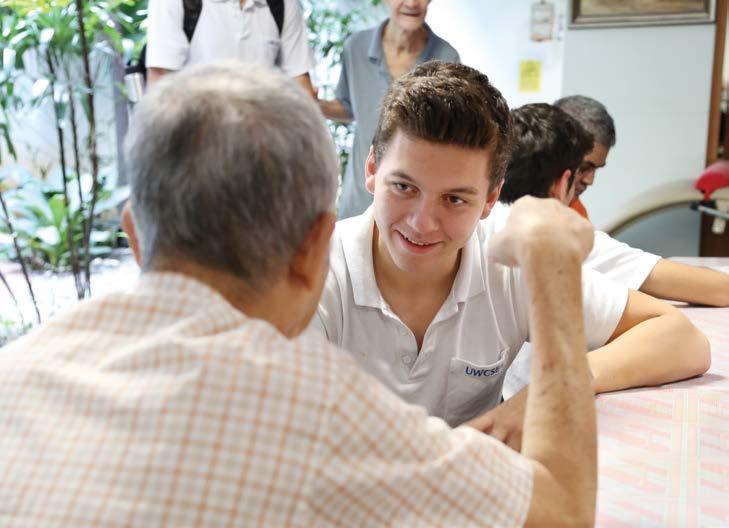
In partnership with Apex Harmony Lodge, two long-running student-led service programmes are open to East Campus students from Grades 9–12, with many students committing to the service throughout their High School years. The ‘Monday group’ focuses on activities that assist with cognitive rehabilitation, while the ‘Friday group’ has evolved over a period of more than a decade to provide a programme of music therapy which both enhances the quality of life of the resident participants, but also contributes to ongoing research into the impacts of music on persons living with dementia.
Research shows that music awakens a part of the brain not impacted by dementia and evokes responses, such as singing and movement, and reconnection with loved ones, which in turn improves the quality of life of persons with dementia (PWD), and their families and carers.
Project Fuxi grew from a desire to extend the long-term collaboration with Apex Harmony Lodge, in which the service group collaborated with Harmony Lodge staff to develop and deliver Music Therapy for PWD. It started with the ‘Music with Reminiscence’ programme, which trained 33 students to collect data. Between 2016 and 2018, students worked with 61 residents as part of a supervised research programme. The results from this study indicated statistically significant increases in scores of positive emotions for residents over the period, while students gained greater understanding of the effects of living with dementia and the positive impact that music and personal interactions can have for elderly people.
The student group has continued to run weekly music therapy, building a collection of Singapore-focused music into a library on which they can draw as they get to know their clients history and music preferences. By leveraging UWCSEA’s community network and student-led project groups, Project Fuxi was launched in the 2021/2022 school year as part of the College’s 50th Anniversary Innovation Grants. The aim was to use the seed funding to support students as they looked to develop a user-friendly and cost effective way for PWD and their carers across Singapore (and beyond) to enjoy the benefits of regular music therapy.
Project Fuxi proposed creation of cloud based software on an open-source platform that can be used by anyone in Singapore and beyond. It combines coding, AI (matching biographical information with musical heritage), as well as tracking EEG data, and creating links to existing music libraries. Copyright and cost-effective access to music was a particular challenge which the group hoped to investigate further, in parallel with developing the online tools.
Important milestones this year were:
• connecting with Microsoft CTO Justin Baird, who advised on the technology
• connection with EMOTIV (a company that makes EEG headsets)
• meeting with Spotify to explore options for cost-effective access to music
• connection with Music and Memory (a not-for-profit organisation in the United States)
• engaging groups of students in the coding and development of the technology (which is ongoing)
Work continues on this incredible intersection of innovation and service learning, as the group adapts to the challenges and opportunities that the project presents.

“... what UWCSEA is hoping to foster individually in students is that understanding and ability to be a peacemaker in a positive sense.”
MELANIE WILSON, Head of High School Global Politics, UWCSEA East in UWCSEA White Paper1: EDUCATING FOR PEACE

The UWCSEA community is a vibrant, truly international group of students, boarders, scholars, staff, alumni and parents who are united in a common purpose. This section of the report provides some statistics and information about our community.
In the College, activity for DEI in the organisational context remains focused on the various stakeholder groups that make up our community. In 2021/2022, the College shifted focus from emphasis on consultation with stakeholder groups across the spectrum of viewpoints, to an approach that prioritised building momentum through implementation of a series of pragmatic projects that would support a critical shift in thinking, attitudes and behaviours toward creating a more inclusive environment.
Our chosen approach was, appropriately, an educational one. By offering workshops, training and resources that addressed concerns raised by our community during consultative activity in previous years, we allowed our community to self-discover their own bias. Through discussing and acknowledging polarised views, and by teaching ways to have difficult conversations, we gave the community a degree of autonomy and trust in identifying what constitutes inclusive behaviours (or a lack thereof).
In January 2022, the College began to focus on bringing the majority of our community on this learning journey, for example by introducing the Intercultural Development Inventory (IDI) assessment tool as a way to open up difficult conversations regarding unconscious bias and behaviours. In preparation for the introduction of the IDI for all teaching staff, consultancy and guidance from Dr. Eeqbal Hassim saw in professional learning events in Term 3, in addition to the training of the first cohort of UWCSEA staff in providing detailed, often sensitive, debriefing for staff who had taken the IDI assessment.
Through targeted workshops in the staff parent community we also started raising awareness and creating a sense of shared responsibility. Community members assisted to offer workshops in Unconscious Bias and Intercultural Competence in languages including English, Chinese, Japanese and Korean.
Moving forward, this very broad offering of professional learning sessions on many DEI related topics will continue to create opportunities for making the community more aware, create deeper understanding and look towards finding inclusive systemic solutions.
This year the UWCSEA Community Agreements were drafted in consultation with our stakeholders, with a launch planned early in the 2022/2023 school year.
In the 2021/2022 school year, the entire community of students, staff and parents remained flexible and responsive to the everevolving nature of safe management measurements. This included some periods of home based learning which were initiated by the College in order to ensure continuity of learning for students in a particular class, grade or school section.
The year started with some home based learning for those students who were joining our community or returning from overseas travel and required to quarantine on entry to Singapore. To allow for smooth running of the College, Term 1 saw the implementation of a number of additional reporting and compliance measures. We were grateful for the support of our community in order to implement these sometimes rapidly changing measures successfully in order to be operationally compliant with Singapore Government requirements. This included mandatory twice-daily temperature logging, early support for Ministry of Health contact tracing and vaccination monitoring for both staff and students.
One key decision which was taken early in the school year following community consultation was to have a College-wide week of home based learning for the first week of Term 2, to enable families and staff to travel in the Term 2 break while allowing for continuity of learning and the unpredictability of possible quarantine measures should the large numbers of community members who were planning to travel during that break be required to quarantine on return to Singapore.
We are exceedingly grateful for the support of our community as we worked hand in hand with the Singapore authorities to keep our community safe and well and to ensure the continuity of learning for our students.

In keeping with our mission and values, our diverse student community bring a variety of backgrounds and experiences to our campuses. Our students’ learning, their interactions, and growth through the five elements of our learning programme is all the more exciting and enriching because they interact with peers who bring a diversity of cultures, life experiences, and perspectives to the campus and classroom.
9.1%
5.4 years
8.6% East Campus leavers Average length of stay of leavers
5.4 years
8.9% College leavers Average length of stay of leavers
5.4 years
26.1% India
10.8% United Kingdom
9.2% China
7.7% Australia
7.5% United States
6.6% Singapore
4.8% Japan
3.2% Canada
2.9% Hong Kong
2.8% South Korea
18.4% Others (62 nationalities)
Countries represented by UWCSEA students
Argentina; Armenia; Australia; Austria; Bangladesh; Belarus; Belgium; Bolivia; Botswana; Brazil; Bulgaria; Burkina Faso; Cambodia; Canada; Chile; China; Colombia; Costa Rica; Croatia; Cyprus; Czech Republic; Denmark; Dominican Republic; Ecuador; El Salvador; Estonia; Eswatini; Ethiopia; Finland; France; Germany; Ghana; Greece; Guatemala; Haiti; Honduras; Hong Kong; Hungary; India; Indonesia; Ireland; Israel; Italy; Jamaica; Japan; Kazakhstan; Kenya; Latvia; Lebanon; Lithuania; Macao; Macedonia; Madagascar; Malawi; Malaysia; Maldives; Mauritius; Mexico; Moldova; Monaco; Mongolia; Montenegro; Myanmar; Namibia; Nepal; Netherlands; New Zealand; Norway; Pakistan; Panama; Paraguay; Philippines; Poland; Portugal; Romania; Russia; Saint Kitts and Nevis; Senegal; Serbia; Sierra Leone; Singapore; Slovakia; Slovenia; South Africa; South Korea; Spain; Sri Lanka; Sweden; Switzerland; Taiwan; Tajikistan; Tanzania; Thailand; Togo; Turkey; Uganda; Ukraine; United Kingdom; United States; Uruguay; Vanuatu; Venezuela; Vietnam; Zambia
The founder of the UWC movement, Kurt Hahn, believed the experience of living and learning with other young people from around the world should be at the heart of UWC’s philosophy. In 2021/2022, the residential communities in the Kurt Hahn and Nelson Mandela Houses on Dover Campus and Tampines House on East Campus provided a residential boarding experience aligned with our mission, albeit while still coping with the ongoing challenges created by the global pandemic.
The College community benefits tremendously from the presence of scholarship students who make up around one third of our boarding community. The diversity of background, culture, socio-economic status and life experience of our scholars enriches the everyday life of our whole community, and this is particularly true of the UWCSEA boarding experience.
In the same way as all other UWCSEA High School students, scholarship recipients are selected on the basis of their potential to have a positive impact on their local and global community, and must have the academic ability to meet the demands of the UWCSEA learning programme. Some scholars are selected by the College directly with consultation through the UWC National Committee, but most are selected through their country's UWC National Committee.
Across both campuses, our residential community continued to show exceptional resilience, demonstrating both commitment to care and self management as they rose to the challenges of quarantine in order to join the community at the start of the year, and to periods of social distancing both in class and in the boarding house in response to government health management guidelines for the pandemic throughout the year. Many community members—students and staff alike—were unable to travel home until the end of the school year.
In 2021/2022, the UWCSEA community welcomed 101 scholars from 65 countries to our boarding community in Singapore, and supported another 10 to attend our sister UWC schools and colleges around the world.
Countries represented by scholars
Argentina; Austria; Belarus; Belgium; Bolivia; Botswana; Brazil; Burkina Faso; Cambodia; Chile; China; Colombia; Costa Rica; Denmark; Dominican Republic; Ecuador; El Salvador; Estonia; Eswatini; Ethiopia; Germany; Ghana; Greece; Guatemala; Haiti; Honduras; Indonesia; Ireland; Italy; Jamaica; Kenya; Latvia; Lithuania; Macedonia; Madagascar; Malawi; Malaysia; Mexico; Moldova; Montenegro; Myanmar; Namibia; Netherlands; Panama; Paraguay; Philippines; Poland; Portugal; Senegal; Serbia; Sierra Leone; Slovakia; Slovenia; Spain; Sri Lanka; Tajikistan; Tanzania; Thailand; Togo; Uganda; Ukraine; Uruguay; Venezuela; Vietnam; Zambia
111 Scholars receiving a UWC education
101 scholars at UWCSEA 1
3
2
UWC Dilijan Scholarships (Grade 11)
1
2
Waterford Kamhlaba
UWC
Fund Scholarships (Grade 11 and Grade 12)
1
UWCSEA’s vision is to be a leader in international education, with a worldwide reputation for providing a challenging, holistic, values-based education. The recruitment and retention of excellent staff who are aligned to the mission and values of the UWC Movement remains central to our vision.
The College provides specialist teaching staff for students of all ages, recruiting fully qualified teachers who have experience teaching in international environments. Many have postgraduate qualifications, ensuring that we are able to offer the highestquality experience to our students. Our team of full time Outdoor Education staff is unique amongst schools in Singapore supported the continued delivery of the Outdoor Education programme during the periods of travel restrictions across the school year. In terms of Educational Support staff, this includes provision of teacher assistants in the Primary School; technical, PE, and laboratory assistants in science and other specialist classrooms in the Middle and High Schools, as well as professionally
experienced support staff and coaches in the Physical Education, Drama, Design Technology and Music Departments. The extensive business operations of the College are supported by similarly qualified and experienced staff. Our administrative and support staff provide our teaching staff with support that enables them to focus their energy on providing an outstanding educational experience for our students.
The College is an equal opportunity employer, and our staff are an important part of our inclusive community, and which celebrates diversity. In much the same way as we consider diversity factors in applications from qualified students for the fresh perspectives they will bring to their cohort, we welcome staff who contribute to our community in the same way. Many of our administrative, educational support and operations staff are Singaporean, and provide unique connections with the community in which we live and learn.
At the heart of the College’s alumni engagement programme is the opportunity for the UWCSEA community to remain connected—with each other, with the UWC movement and with the ideals of the mission—by encouraging life-long connections and mutually beneficial relationships.

UWCSEA alumni are invited to get involved and give back in many ways. The Alumni Relations team continued to offer opportunities for our network of alumni around the world to stay connected with the College through events and communication services including e-newsletters, the website and the publication of the 19th edition of One°North magazine.
Implications for the Alumni Relations Strategy, brought about by the ongoing safe management measures as a result of the ongoing Covid-19 pandemic, saw a shift in the focus of engagement efforts to an online model. With all in-person reunion events cancelled, and no access available to campus for visits and tours, the team was able to test a number of new and creative methods to connect the global alumni community.
Over 20-22 August 2022, the College’s 50th anniversary year celebrations kicked off with the milestone reunion event. Pandemic-related travel restrictions meant that the 14 classes celebrating their reunions (1975, 1976, 1980, 1981, 1985, 1986, 1990, 1991, 1995, 1996, 2000, 2001, 2010, 2011) were invited to an online celebration which saw nearly 50 events take place over the three days of the reunion.
A mix of panel discussions, networking, workshops and class catch ups—including dial ins from several in person gatherings which took place in parts of the world where this was possible saw more than 800 alumni register for the event
Using a dedicated online event platform, the team were able to host the event using a mix of live and pre-recorded content, including a tour of the boarding house and cooking classes for Singapore’s famous Chicken Rice, and the much admired cinnamon buns from the Dover bakery.
Several new initiatives to connect alumni across special interest groups were tried at the event, including alumni-hosted discussions on Sustainability, Scholarships, Service and Innovation and networking opportunities for writers and those involved in action for climate and the environment.
Alumni participating in the August 2021 reunion generously donated more than S$78,000 to support the Scholarship Programme, further demonstrating the collective impact alumni continue to have in advancing our mission.
25,075 Alumni
15,578 62% Contactable alumni of total alumni
Countries in which alumni are located
Albania; Argentina; Armenia; Aruba; Australia; Austria; Azerbaijan; Bahamas; Bahrain; Bangladesh; Barbados; Belarus; Belgium; Belize; Benin; Bermuda; Bhutan; Bolivia; Botswana; Brazil; Brunei Darussalam; Bulgaria; Burkina Faso; Cambodia; Cameroon; Canada; Cayman Islands; Chile; China; Colombia; Costa Rica; Croatia; Curaçao; Cyprus; Czech Republic; Denmark; Dutch Caribbean; Ecuador; Egypt; El Salvador; Estonia; Eswatini; Ethiopia; Falkland Islands (Malvinas); Faroe Islands; Fiji; Finland; France; Georgia; Germany; Ghana; Greece; Guatemala; Guyana; Haiti; Honduras; Hong Kong; Hungary; Iceland; India; Indonesia; Ireland; Israel; Italy; Jamaica; Japan; Jersey; Jordan; Kazakhstan; Kenya; Kuwait; Laos; Latvia; Lebanon; Lithuania; Luxembourg; Macao; Macedonia; Madagascar; Malawi; Malaysia; Maldives; Malta; Marshall Islands; Mauritius; Mexico; Moldova; Mongolia; Montenegro; Morocco; Myanmar; Namibia; Nepal; Netherlands; New Zealand; Nigeria; Norway; Oman; Pakistan; Panama; Papua New Guinea; Paraguay; Peru; Philippines; Poland; Portugal; Qatar; Romania; Russia; Rwanda; Samoa; Saudi Arabia; Senegal; Serbia and Montenegro; Sierra Leone; Singapore; Slovakia; Slovenia; South Africa; South Korea; South Sudan; Spain; Sri Lanka; Sweden; Switzerland; Taiwan; Tajikistan; Tanzania; Thailand; Timor-Leste; Trinidad and Tobago; Turkey; Turks and Caicos Islands; Uganda; Ukraine; United Arab Emirates; United Kingdom; United States; Uruguay; Venezuela; Vietnam; Virgin Islands; Zambia; Zimbabwe
In line with the Alumni Relations Strategy to move to a more interactive and interconnected engagement strategy, the previous alumni engagement platform was replaced with a new tool provided by Graduway.
In addition to communication tools such as notices, calendars and event sign-ups, the new platform offers the following features:
• Searchable member directory
• Capacity to create special interest groups across year-groups
• Job boards
• Mentoring features to connect alumni with current students and each other
Over 2,500 alumni have registered on UWCSEA Connect, with 55% willing to provide mentorship for current students, and to offer help to others in the alumni community.
The focus on building registrations and usage will continue in the next year, with special interest content and groups being a focus area to drive membership growth.
The UWCSEA Values In Action Award recognises significant and sustained impact made by our alumni community at the local, national, and international level and celebrates those who have gone on to bring UWCSEA's mission and values to life through action which creates a lasting, positive impact.
As part of our ongoing work to identify how the College can measure the impact of a UWCSEA education, and therefore be accountable to delivering our commitment to the UWC mission, the UWCSEA Guiding Statements describe the UWCSEA Mission Competencies which we hope our alumni will bring to their lives beyond the College. Extending beyond 'Essential Literacies' (which all schools aspire for their students to gain), the four additional mission competencies we have identified, and which form the categories for the Values in Action Award are:
• Peace
• Sustainability
• Inclusion
• Community Wellbeing
As part of 50th anniversary, 19 Alumni were awarded the UWCSEA Values in Action Award. By recognising alumni who are expressing these competencies through their actions and lives, we hope to inspire future generations of students to live a UWCdriven life beyond their time in Singapore at UWCSEA.
Our active and engaged parent community provided the College with an exceptional level of support through the activities of parent volunteers. This continued in the 2021/2022 year, and we are grateful to our parent community for their continued support and engagement. Whenever it became possible we were pleased to welcome parents to campus, and at individual moments across the year were able to hold in person parent-student-teacher conferences, information and welcome meetings and a number of parent workshops.
We recognise that it remained a challenging year in which many of the activities which helped to create and maintain community connections that are so much a part of the UWCSEA experience continued to be curtailed for much of the year. We welcomed every opportunity to invite parents to visit campus and connect with their child’s learning, while understanding that visits from the wider community, and our parents in particular, remained for the most part curtailed as a result of the health and safety requirements of on-going pandemic management.
On both campuses our hard-working Parents’ Associations (PA) were managed by an elected committee of enthusiastic volunteers, who offered their time to serve the school community. A large number of parent volunteers support the programmes run by the PA throughout the year, as well as class-based initiatives which were able to resume in Covid-19 restricted ways this year. By helping parents connect with one another and to other important groups, our parent community and the PA contributed significantly to one of the College’s most important strategic goals: to build a united, diverse and strong community.
In a typical year, the PAs organise an exciting and diverse array of events and activities which are designed to connect the parent community with the life of the school and with each other, from large, campus-wide events, to social coffees and lunches, to regular and one-off activities or outings.
This year, while many of the events on the annual calendar were interrupted by the continuing gathering restrictions imposed as safe management practises in the face of the pandemic, our PA’s continued to rise to the challenge of creating alternative ways of supporting the community. Volunteers rallied and continued to contribute at class or grade-level and nationality representatives worked hard to facilitate and coordinate information flow, class updates and collate feedback.
Importantly, they were also integral in supporting our boarding communities during the holiday periods, when many boarding students were still unable to travel home, welcoming our boarders and scholars into the homes and families of our day student community.
Important initiatives that did take place included buddy programmes that welcomed new families joining the school in August 2021 and January 2022, the annual High School Careers Fair which remained a virtual event to connect students with community volunteers. Importantly, a number of PA volunteers participated in Unconscious Bias and Values in Action workshops, with PA volunteers in languages such as Chinese, Japanese and Korean attending so as to help translate the content for parents whose first language is not English.
One highlight in the year was the opportunity to welcome parents back onto the campuses as visitation restrictions gradually lifted in the second half of the school year. We are grateful to the PA volunteers who conducted numerous campus tours for our newer community members—some of whom had not been on campus since their child started at school in August. Enthusiastic new families were invited to sign-up for the campus and school-based tours, guided by safely distanced representatives from the Parents’ Associations.
On the Dover Campus, we were grateful to have the participation of the Parents’ Association in the CIS/WASC reaccreditation process, which concluded in June 2022 with the welcome announcement of the campus’ reaccreditation.
Both Parents’ Association are registered as a society in Singapore under the Societies Act. They operate individually and have independent constitutions and Managing Committee structures which are governed by a constitution and bye-laws, with independently audited financial statements available to members each year.


A volunteer, parent-led organisation that falls under the Service umbrella of the College, PACE serves the UWCSEA community across both campuses. With a common mission and through shared values, PACE strives to support the UWCSEA Strategy to create a united community by welcoming all parents, staff and alumni. Their annual schedule of activities provides both a social network and many opportunities to contribute to the Singapore community and beyond in ways that align with our UWCSEA values.
Over the last 22 years, with the support of volunteers, PACE has established libraries in Myanmar, built schools in Cambodia, provided 13 years of volunteer services to HCA hospice care in Singapore, donated over 200,000 school lunches to children in need and helped over 300 children graduate from High School and College in the Philippines.
PACE serves the UWCSEA community across both campuses via activities and events that provide both a social network and the opportunity to pursue individual interests. Despite the Covid-19 imposed safe distancing restrictions the 2021/2022 school year was no different, and volunteers from across the community continued to participate in an array of classes, social outings, tours, and volunteering events designed to connect the UWCSEA community.
In November 2021, PACE was honoured by long-term partner HCA Hospice Care for the groups 13-year commitment to supporting patients in their care network. As one of three longest serving volunteer groups, PACE were delighted to be invited to speak at the Virtual Appreciation Night on 19 November 2021. The slight easing of restrictions around that time meant that a number of special in person events could resume, taking into account the safe distancing and visitor guidelines that kept the HCA patients safe. These included groups of five volunteers visiting to conduct a Rangoli event for Diwali, a Christmas card making event and to cook for the annual Christmas celebration event. The group-volunteer cooking-at-home events initiated in the previous year also continued.
A family service day at Willing Hearts and several Bike Rides were successful community building events, as were the everpopular walking tours: Kampong Glam, Chinatown and Jewish Heritage. Online talks continued, with topics including Composting at Home. In a typical year, PACE holds many activities and classes, covering a range of areas which include: Sports and Fitness, Language Classes, Health and Nutrition, Tours, Cooking Classes, and other Personal Development Programmes. The aim is to offer a mixed variety of interesting classes and programmes that help to support the building of friendships and community spirit throughout the UWCSEA campuses.
This year PACE connected with Children’s Wishing Well to conduct a new programme: FRESH, which saw PACE volunteers accompany children from low-income families to their local supermarket to shop for fresh food and important household and personal care items. Using a (volunteer donated) budget, the children were guided through making value-for-money and nutritious purchasing decisions.
PACE’s dedication to serving their partners abroad while overcoming the challenges at home, is a great example of the embodiment of the UWC mission made possible through the strength and generosity of the UWCSEA community.
The UWCSEA Parent Ambassadors are a group of passionate and committed parents who work with and represent the UWCSEA Foundation within the UWCSEA community. The Ambassadors champion and support activities and events of the Foundation, increasing awareness of the impact of giving to the College and encouraging members of the community to get involved in supporting philanthropic initiatives of the College.
For example, Sustainability and Scholarships have always been an important pillar of the contributions from our Parent Ambassador volunteers. Our UWCSEA campuses have both been awarded the Building and Construction Authority’s Green Mark Platinum Award— now at the Super Low Energy level. This is no small feat, and our Parent Ambassadors have long been involved in our sustainability work, supporting and showcasing the impact of philanthropy across our campuses via campus-based sustainability tours. At the end of last year, when restrictions were finally easing we were glad to be able to reinstate these tours on the Dover Campus.
In the 2021/2022 school year, much of our work with Parent Ambassadors was paused as the global pandemic shifted much of the ‘way things were’ in the College and for our community. In the coming 2022/2023 school year, we are looking forward to re-engaging with our dedicated Parent Ambassadors, as important partners in our community engagement and education on the impact of philanthropy at the College.

“Our Mission is about the system of education we have, and our system of education says everything you’re teaching and learning is about how you turn what you’ve learned and understood and practised into action.”
ELIZABETH BRAY, Former Head of UWCSEA Dover
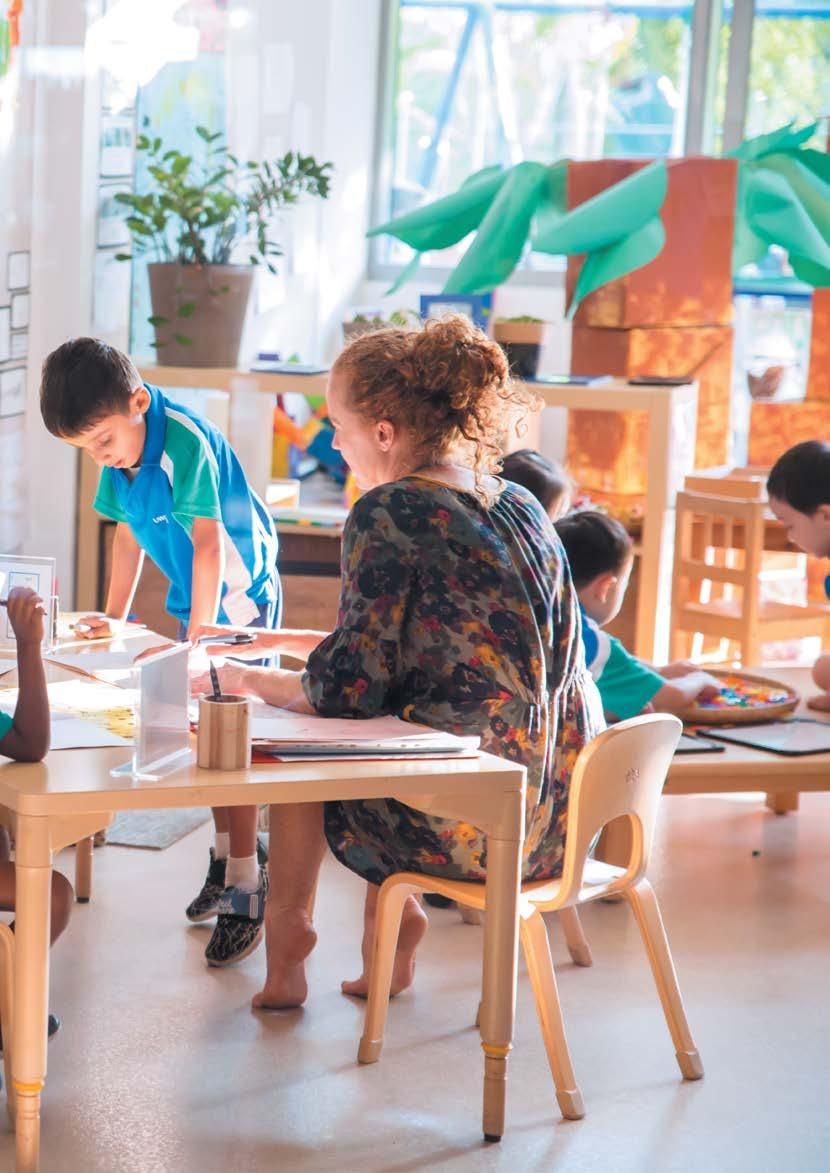
The College has significant business operations. This section of the report provides an overview of staff and student recruitment through Human Resources and Admissions, as well as Finance and the UWCSEA Foundation for the 2021/2022 school year.
UWCSEA’s ambition is to be a leader in international education, with a worldwide reputation for providing a challenging, holistic, values-based education. The recruitment and retention of excellent teachers, and administration and operational teams who can support the mission of the College remains central to this vision.
1,122
2,146 (32.1%) Applications received
6,692
4,546
(67.9%) Teaching applications
The College’s focus on professional learning and development for all staff continued in the 2021/2022 year, organised by the Professional Learning and Development team.
Onsite training opportunities including professional learning days for teachers, with strategy linked whole-school and department based learning focusing on the strategic priority needs identified by each campus.
During the year, in response to the needs of the educational support, administrative and operations staff, ‘PD Fests’ during the holiday breaks gave staff opportunities to select from a range of skill and competency based training options, ranging from two hours to three days. The training options were identified based on needs identified through the Performance Management Programme. While many were sourced from external consultants, a number were led by peers for an internal audience. Courses included soft skills (communication, critical thinking, creativity, team building), wellbeing and stress management, intercultural competency, First Aid, IT, Health, Safety and Compliance, Leadership and other job specialist courses.
2,021 Individual training applications processed
750 Unique participants
24
In-house courses run by UWCSEA staff
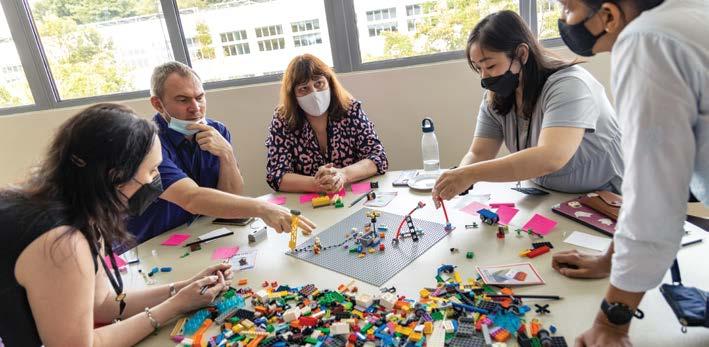
17 UWCSEA staff who led training for colleagues
Over the course of the year, the College trained a number of educational leaders in facilitating LEGO Serious Play (LSP) workshops, with the intent of extending in-house capacity so as to more effectively support the strategic alignment of teams across departments and functions. A visioning tool, LSP workshops are a tool for facilitators who are looking to support groups to come together to name differences in perceptions and practices in a safe and playful learning space.
Linked to accelerating the Our Strength and Capacity strand of the UWCSEA Strategy 2018–2023, LSP workshops were successful in supporting the integration and strengthening of teams in departments and teams across the College and campuses, including Learning Support, Procurement, Finance, School Centre Secretaries, Outdoor Education and Engagement and External Affairs.
The UWCSEA Foundation is the fundraising arm of the College, and is a key strategic function within the Department of Engagement and External Relations. This section of the report highlights the activities of the UWCSEA Foundation in fundraising and stewardship in the 2021/2022 school year.
Since its inception in 2008, the collective generosity of donors, through gifts large and small, has helped the Foundation to raise over S$30 million.
The total gifts reported reflect the cash donations received by the College in the 2021/2022 financial year, including new donations and cash received from pledges made in past financial years. Please refer to the 2021/2022 Impact of Giving Report for details on the total funds and pledges raised, which reflects all funds committed during the financial year. The total gifts amount does not include interest and dividends earned through investment of the endowment fund.
100% of the gifts supported the continued development of the College and the UWC movement through five key programmes: scholarships, sustainable development, teaching and learning, student support, and endowment. Gifts received in a given school (financial) year are generally allocated to support scholarships and other mission-aligned priorities in the subsequent school year.
The Foundation Investment and Disbursement Committee (FIDC) oversees the Foundation endowment, allocating the funds over asset classes with long-term investment horizons. Endowment funds are split between restricted and unrestricted, with restricted endowment money reserved for specific purposes, as directed by donors and/or the College.
1971 Society
Recognises cumulative lifetime gifts in five giving levels.
265 Members
Globe Giving Club
Recognises those who make gifts of S$1,000 or more during the current financial year.
288 Members
Kurt Hahn Society
Recognises those who plan to leave a bequest to the College.
5 Members
This section of the report outlines financial information for the 2021/2022 year for the College.
UWCSEA is incorporated in the Republic of Singapore. As a non-for-profit organisation, the College uses any financial surplus from the campuses for the sole purpose of betterment of the College. Every dollar of school fees supports the provision of UWCSEA’s holistic learning programme, including provision of educational resources, staff and student recruitment, staff development and training, and development and maintenance of facilities in line with our mission for sustainability.
We are pleased to report that our audited financial results for the year 2021/2022, ending in July 2022, compare favourably to the budget approved by the Board of Governors.
Revenue grew just 0.5% versus the budget, as a result of the ongoing effects of the restrictions imposed by pandemic on College operations. Operating expenses were -1.5% less than budgeted expectations. Overall, the net surplus amounted to S$8.76 million or 3.7% of revenue, favourable to budget by S$4.6 million. Surpluses were allocated to the College cash reserves, with the long term aim of ensuring the financial sustainability of the College.
Enrolment-related income comprised 88.7% of total revenue. Donations, investment income and other income contributes to 8.1%. Activities and trips income was 3.2%
72.1% of the College’s expenses are derived from salaries and benefits. Campus operations represent the next biggest expense, comprising 19.2% of the total. Learning resources, technology, administration, donation and other expenses constituted another 6.6%. The 2.1% Activities and Trips expenditure reported does not include staff costs for delivering programmes; these are incorporated in the previously noted salaries and benefits expenditure.
Funding for scholarships is generated through school fees, the UWCSEA Nominee Programme, corporations, foundations, National Committees, and parent, alumni and staff donations. A total of S$8.4 million was allocated to scholarships during the 2021/2022 school year, enabling the UWCSEA community to welcome 101 scholars from 65 countries to our boarding community in Singapore.
Funding for UWCSEA-enroled scholars

S$8.4 million
Total financial support
In addition, support from the UWCSEA community enabled another 10 scholars to attend other UWCs around the world
• 3 UWC East Africa Scholarships (Grade 12)
• 2 UWC Dilijan Scholarships (Grade 11)
• 2 Waterford Kamhlaba UWC UWCSEA Staff Fund Scholarships (Grade 11 and Grade 12)
• 1 UWC Maastricht Scholarship (Grade 11)
• 1 UWC Adriatic UWCSEA Refugee Scholarship (Grade 11)
• 1 UWC Mahindra UWCSEA Staff Fund Scholarship (Grade 11)
The Admissions Department administers all aspects of the admission of students to the College and compliance with Singapore government regulations for admission and continued enrolment of students to foreign system schools in Singapore.
During 2021/2022, the Admissions Department continued to process a large number of applications. Webinar events, virtual meetings and interviews, and virtual tour videos continued to replace in-person open days, meetings and interviews for most of the school year. Small numbers of school tours were offered from Term 3.
Kindergarten to Grade 8 applications are submitted online together with supporting documents, with interviews and in-person assessments arranged where necessary. As well as coordinating testing for applicants who might enrol in our English as an Additional Language (EAL) or Learning Support programmes, all K1 applicants attended a play-based observation session at school. In 2021/2022, the majority of EAL assessments were conducted virtually.
High School and Boarding admission requires all applicants to attend a virtual immersion programme as part of the eligibility assessment process. The programme involves activities, discussions and an interview, giving applicants an opportunity to demonstrate how they would fit with and benefit from the education at the College. In addition to Admissions and senior educational leaders, current High School students participate in group discussion forums and provide a voice for students in the selection process. In 2021/2022 the programme was officially shifted to an online format for all applicants to facilitate equitable participation and in support of the College’s sustainability goals.
1,000 Applications for August 2022 entry
833 ‘Dual campus’ applications
619 Places available for entry
Average applications for each available place
612 Applications for August 2022 entry
833 ‘Dual campus’ applications
556 Places available for entry
Average applications for each available place
1 place 3 applications
The Office of the Registrar in the Admissions Department processes withdrawal notifications for students who are leaving our community, either due to graduation or relocation, and supports all families with immigrationrelated matters. There were 1,080 students who left UWCSEA in 2021/2022, including 583 graduates in the Class of 2022.
1 place 2.6 applications
10.4% Graduate leavers
8.9% All other leavers
19.3% Students leaving average length of stay of leavers
5.4 years

